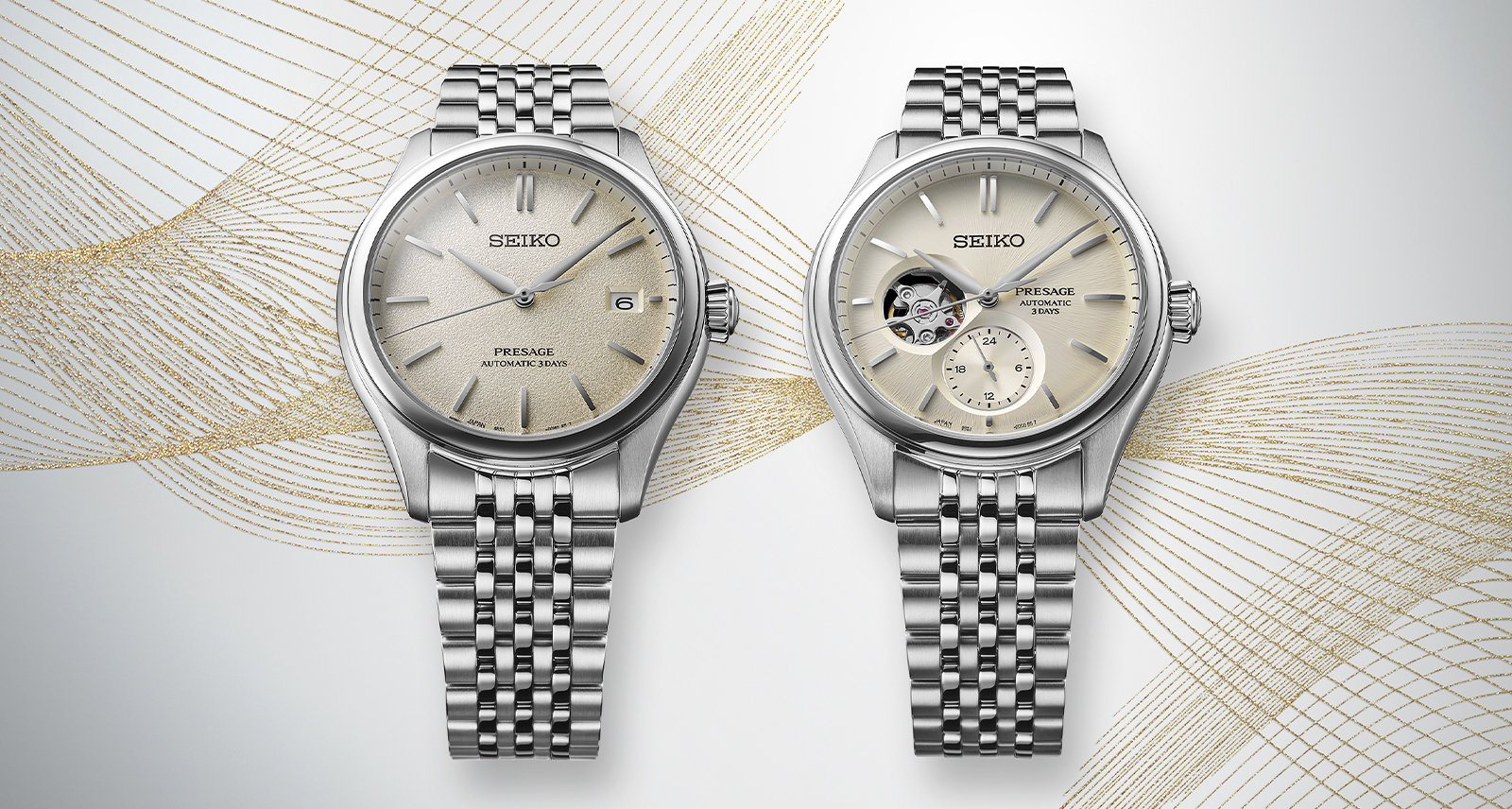Updated Prospex & Presage Collections Mark Seiko’s 100th Year
Let it never be said that Seiko follows anyone else’s playbook. This year marks the 100th anniversary of the first branded Seiko watch, so you might think they’d be going all-out with limited archival editions and other tributes to the Japanese brand’s century of heritage. This may yet come to pass, but for now, it’s more or less business as usual. Given Seiko’s signature combination of high-quality workmanship, exceptional value, and traditional Japanese motifs, however, more of the same is a good thing.
Seiko Prospex
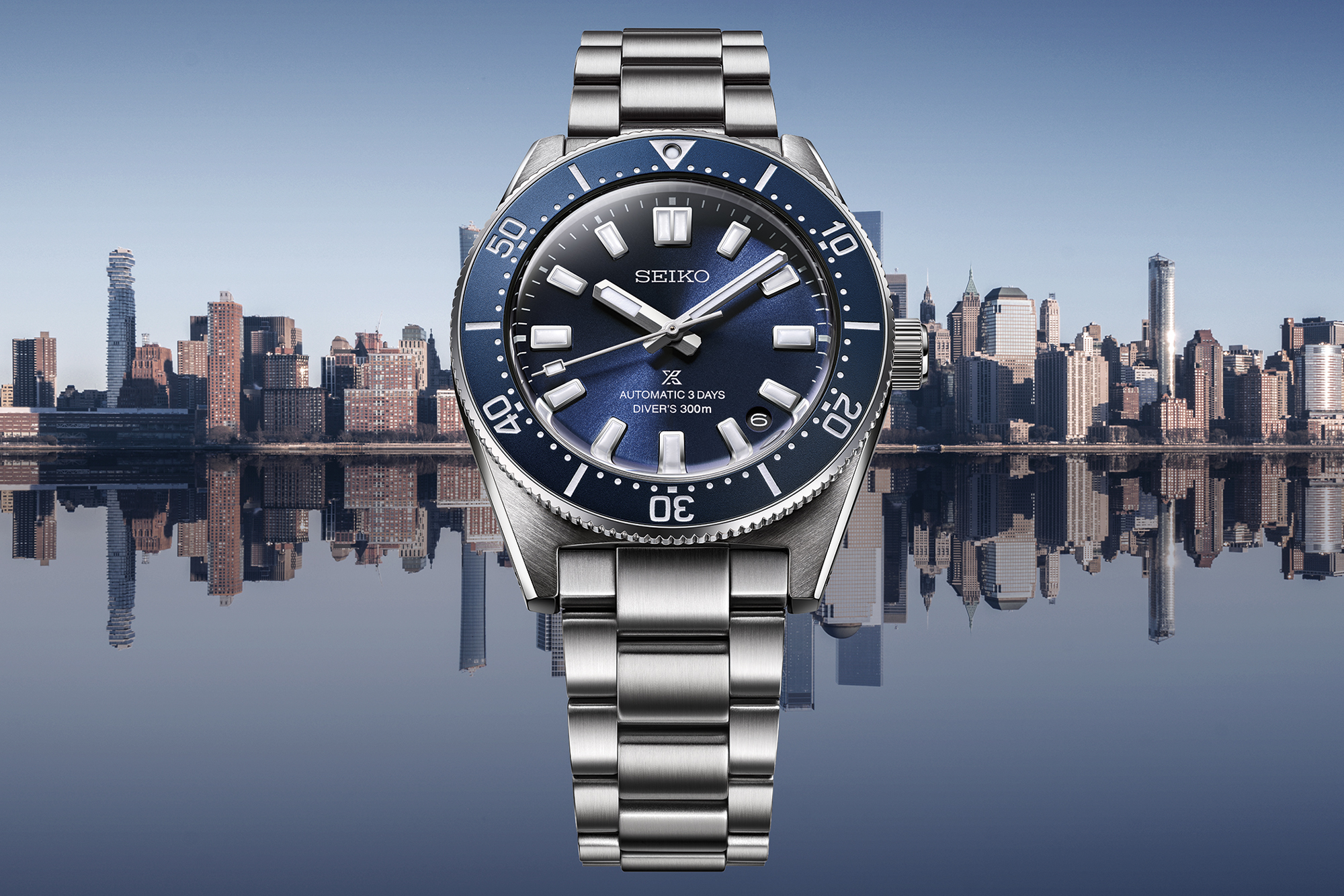
Updated Prospex & Presage Collections Mark Seiko’s 100th Year
1 of 4
Seiko Prospex SPB451 ($1,750)
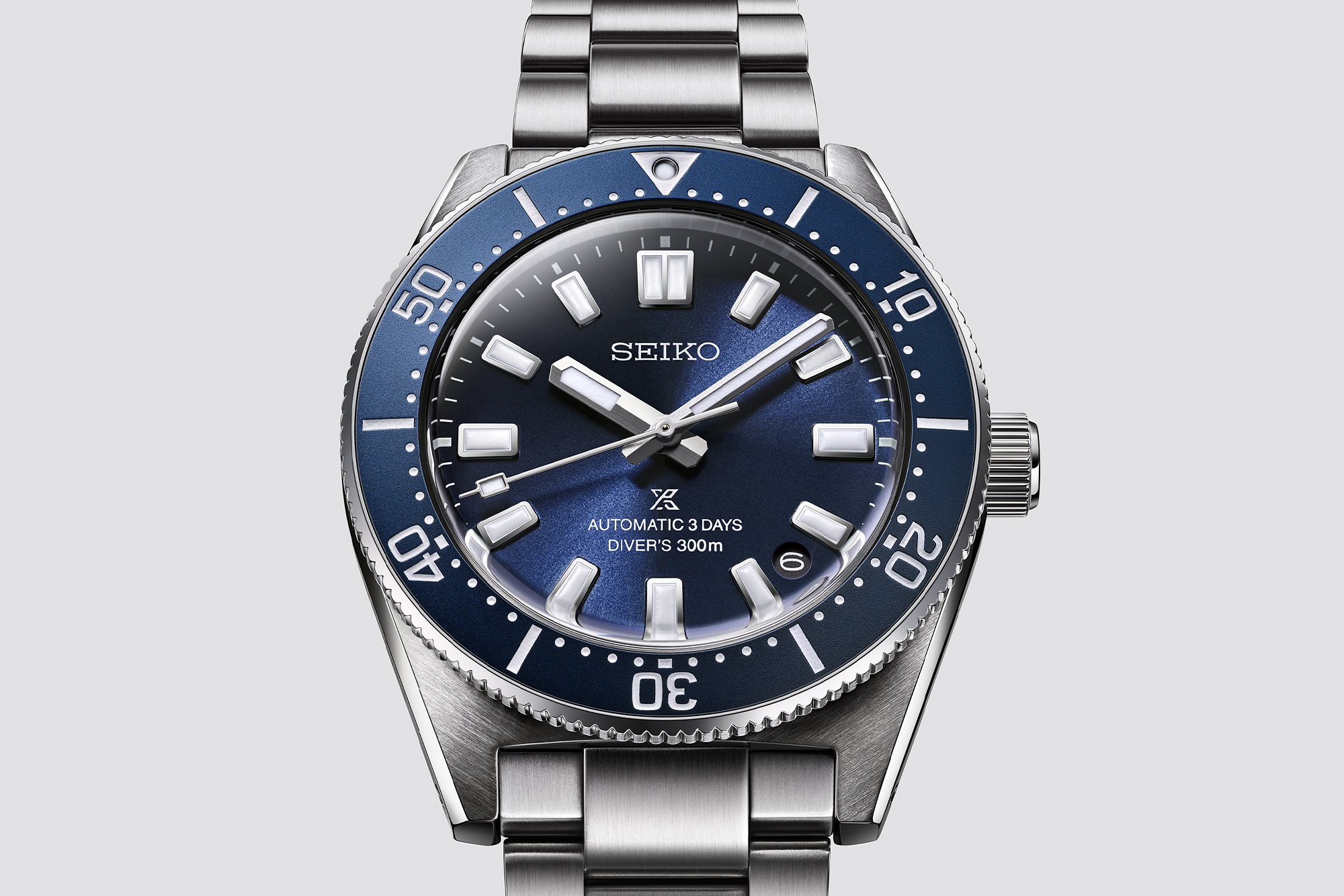
Updated Prospex & Presage Collections Mark Seiko’s 100th Year
2 of 4
Seiko Prospex SPB451 ($1,750)
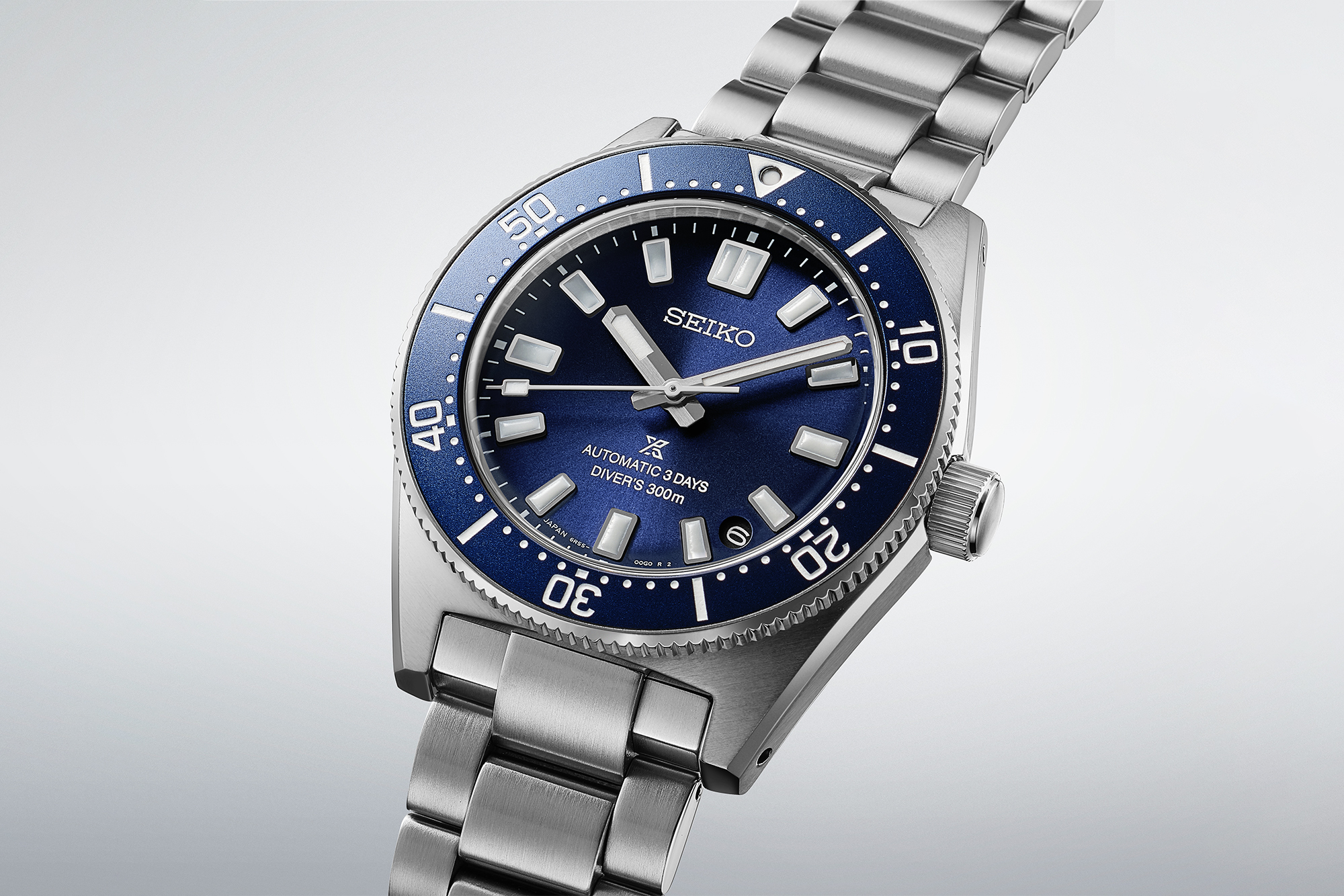
Updated Prospex & Presage Collections Mark Seiko’s 100th Year
3 of 4
Seiko Prospex SPB451 ($1,750)
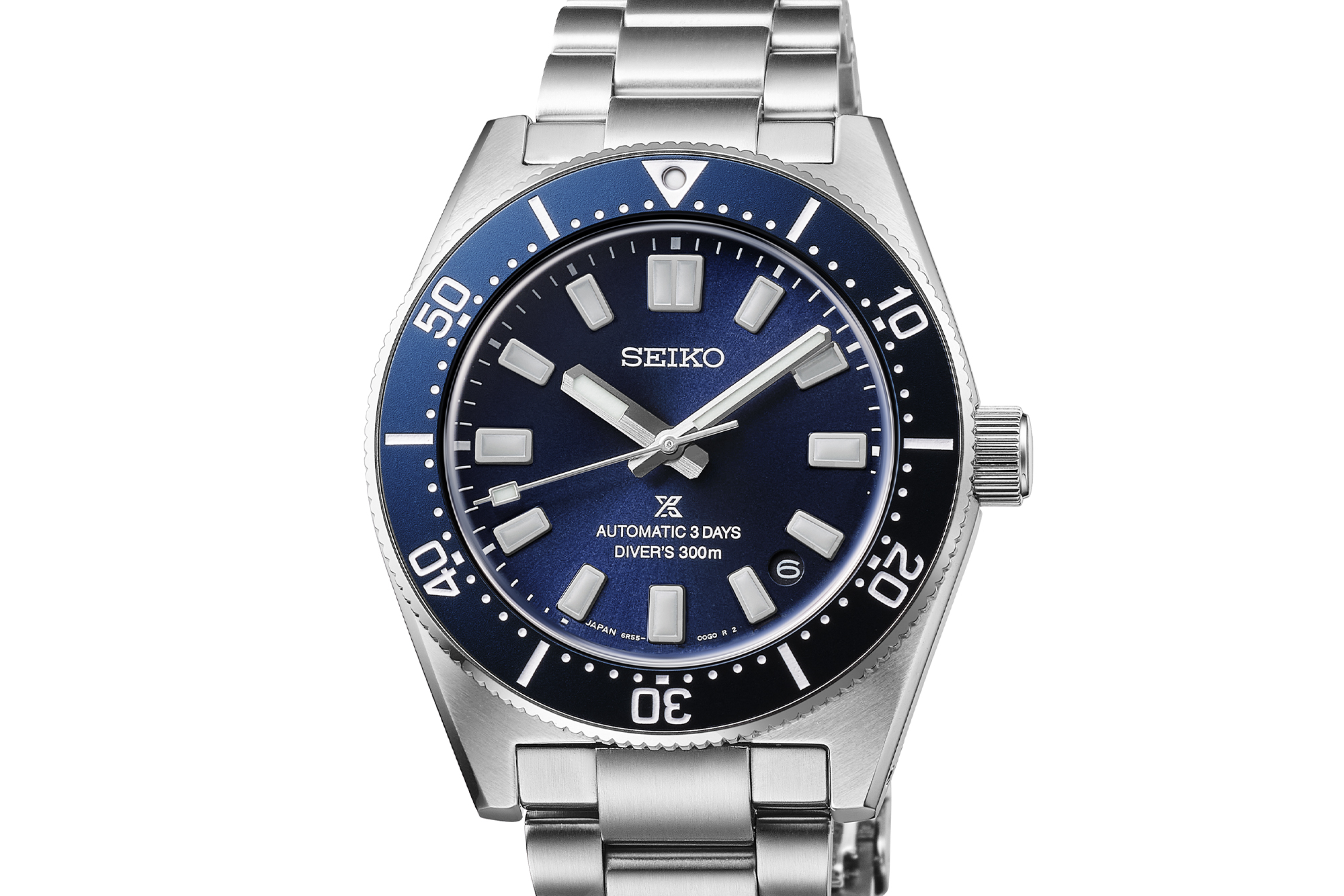
Updated Prospex & Presage Collections Mark Seiko’s 100th Year
4 of 4
Seiko Prospex SPB451 ($1,750)
Learn More
In 2020, Seiko launched the 1965 Diver’s Watch Reinterpretation SPB143, a tribute to the first-ever Japanese dive watch, the legendary 62MAS. This year they’re refining the collection with a new black dial (SPB453) and blue dial (SPB451) version, as well as a commemorative special edition with gold-coloured accents (SPB455) featuring a new fabric strap made out of recycled bottles.
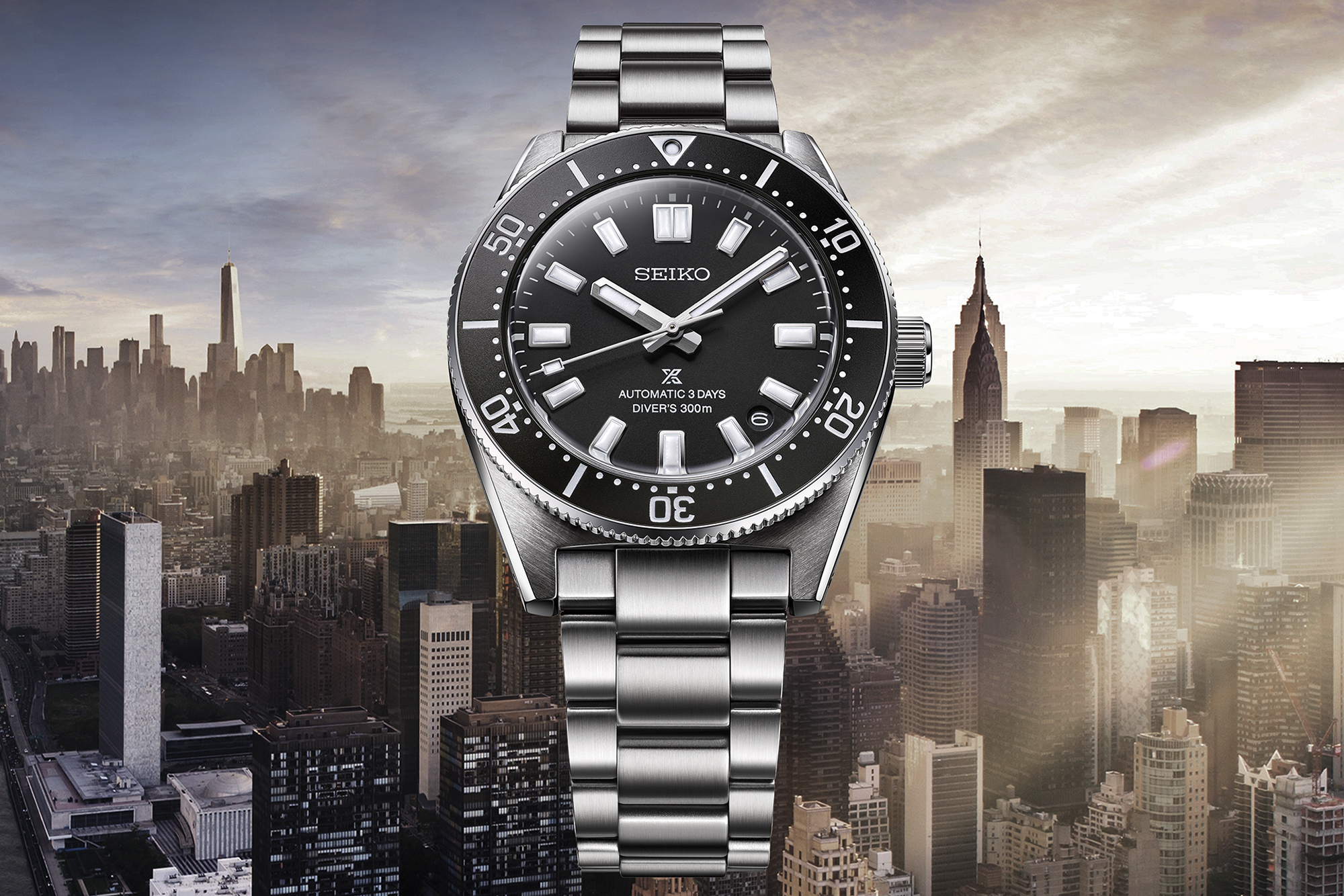
Updated Prospex & Presage Collections Mark Seiko’s 100th Year
1 of 5
Seiko Prospex SPB453 ($1,750)
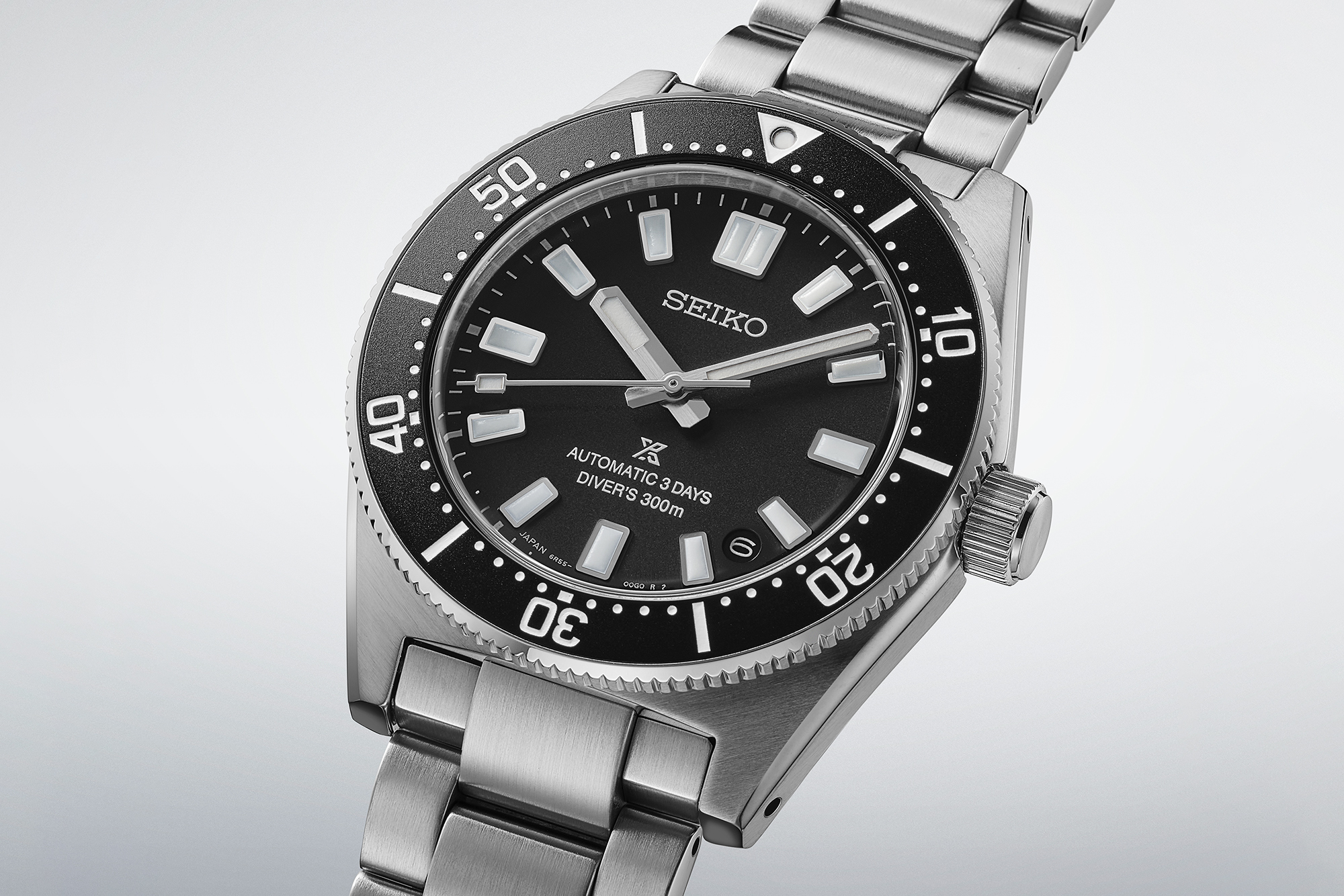
Updated Prospex & Presage Collections Mark Seiko’s 100th Year
2 of 5
Seiko Prospex SPB453 ($1,750)
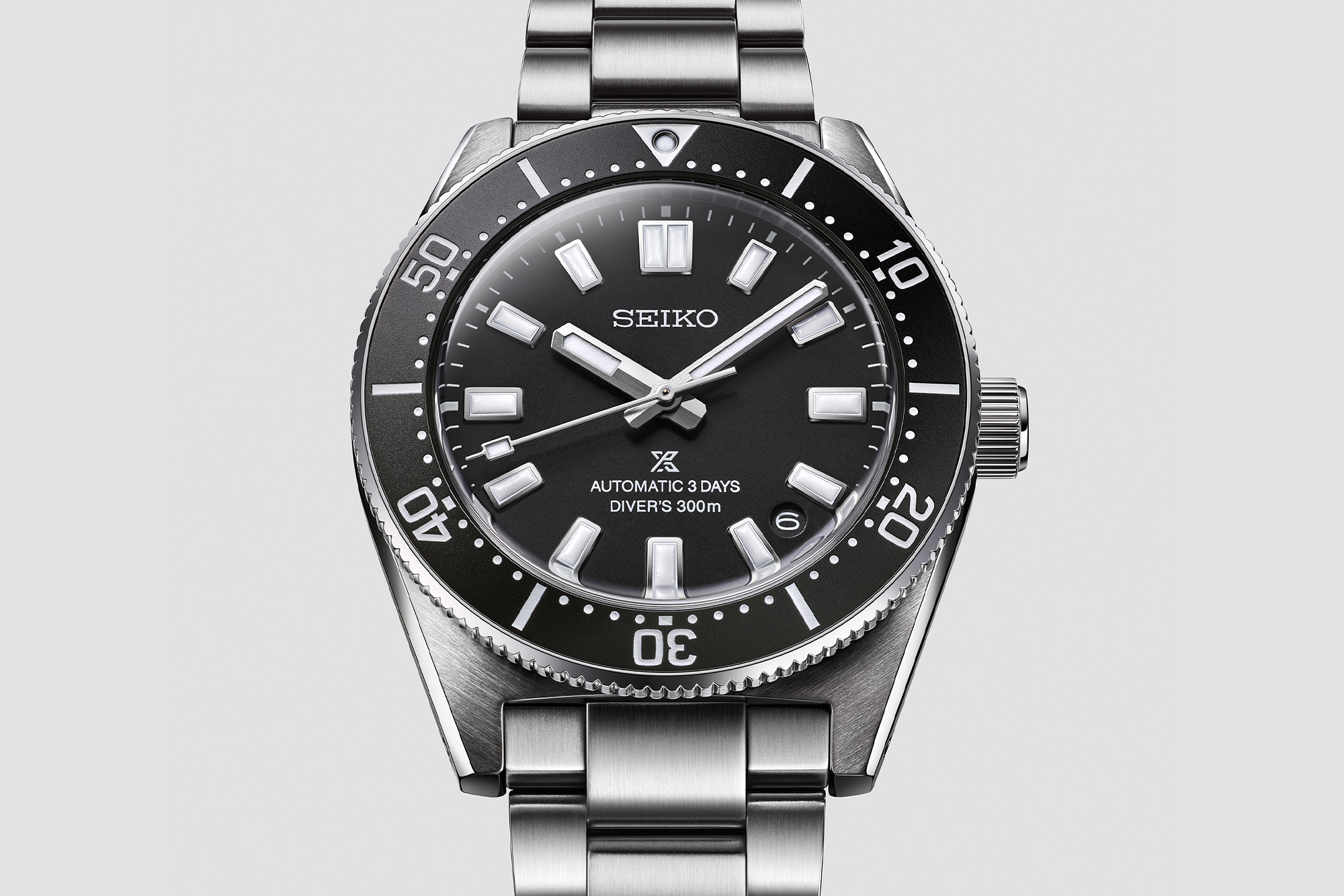
Updated Prospex & Presage Collections Mark Seiko’s 100th Year
3 of 5
Seiko Prospex SPB453 ($1,750)
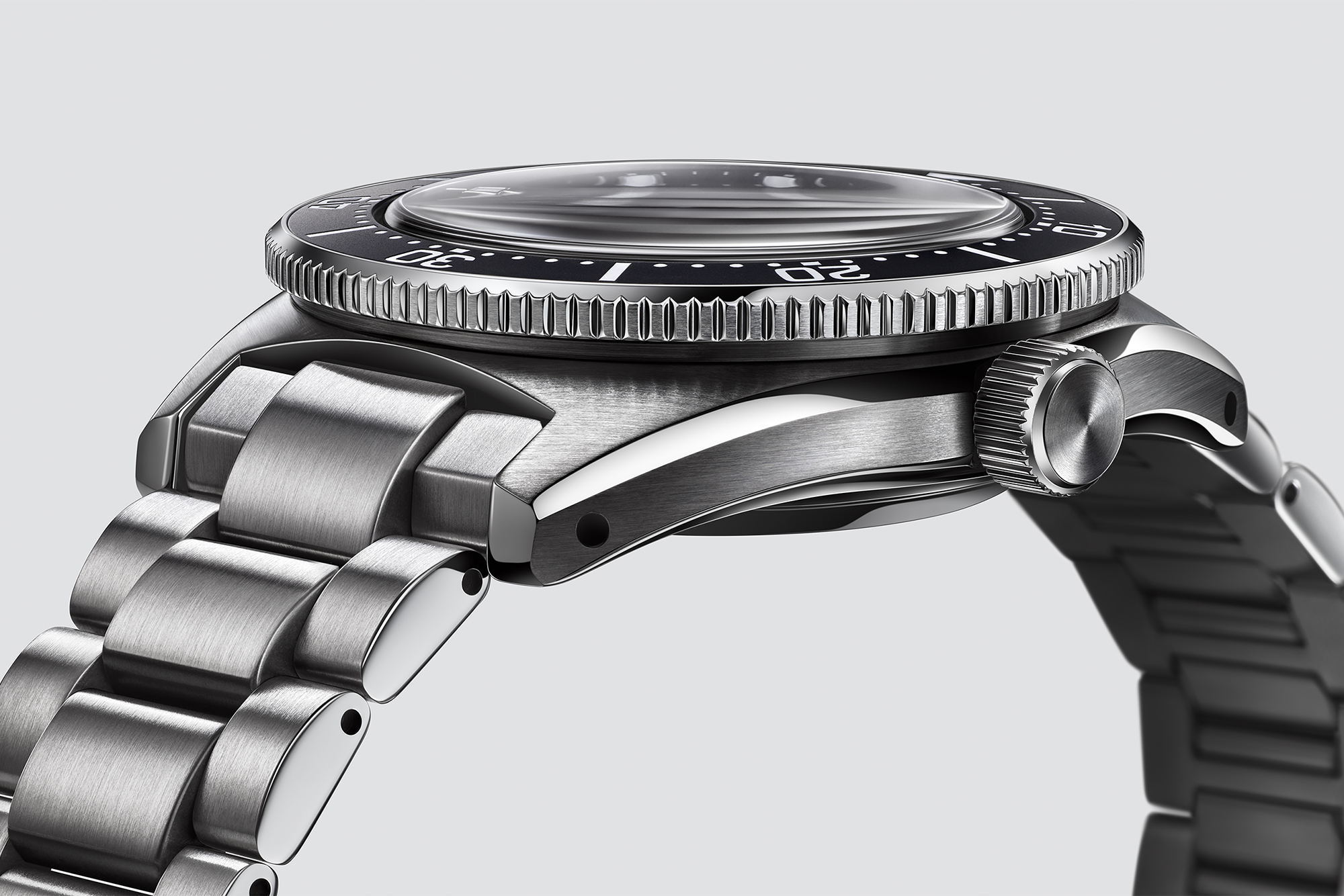
Updated Prospex & Presage Collections Mark Seiko’s 100th Year
4 of 5
Seiko Prospex SPB453 ($1,750)

Updated Prospex & Presage Collections Mark Seiko’s 100th Year
5 of 5
Seiko Prospex SPB453 ($1,750)
Learn More
The collection boasts improved 300m water resistance and is powered by one of Seiko’s latest in-house movements, Caliber 6R55, with a full three days of power reserve — a first for the Prospex line. Other changes include shorter lugs and a more compact design, with a new diameter of 40mm, lug-to-lug length of 46.4mm, and a thickness of 13mm, all of which was achieved through some extremely painstaking feats of engineering by Seiko’s design team.
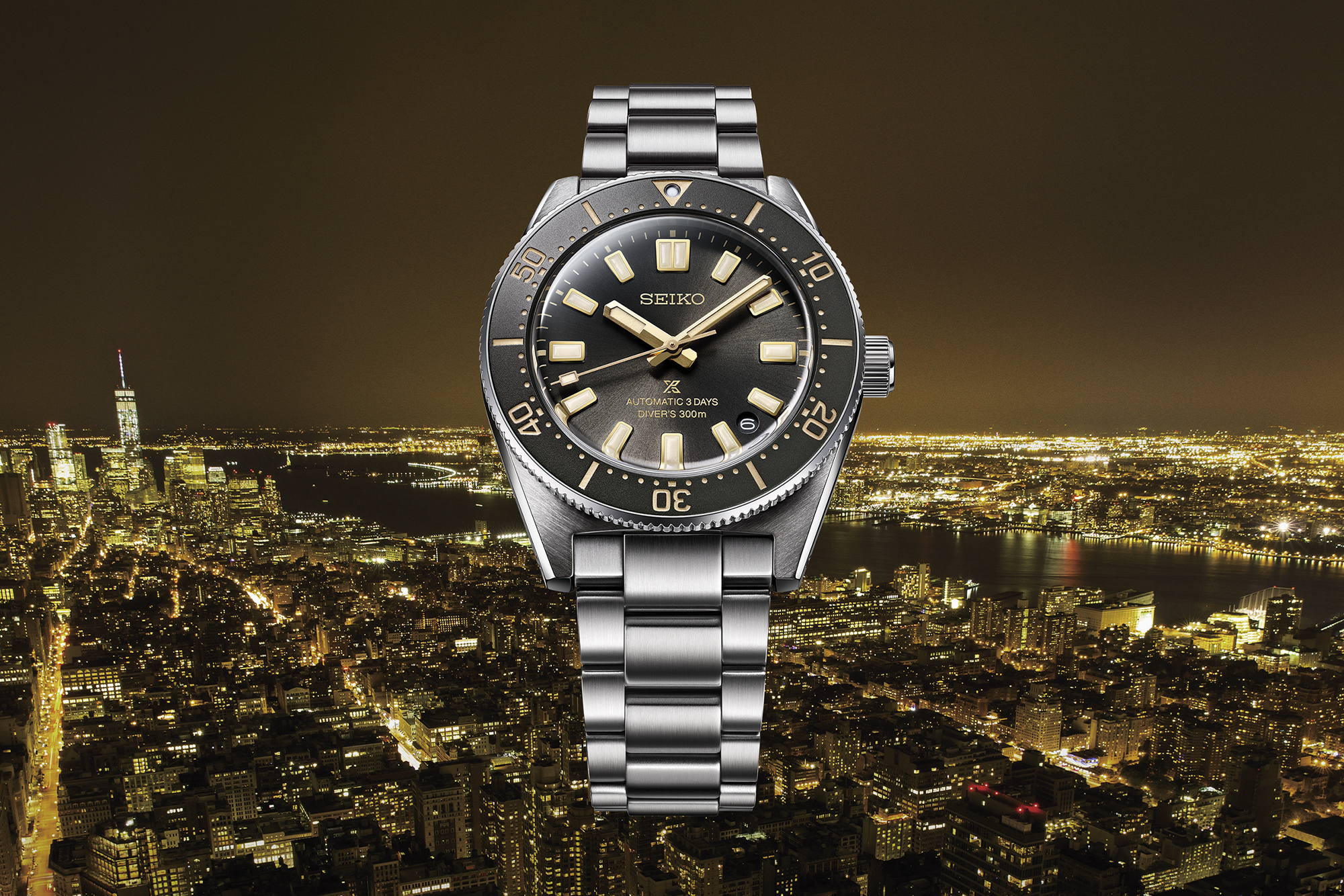
Updated Prospex & Presage Collections Mark Seiko’s 100th Year
1 of 5
Seiko Prospex SPB455 ($2,025)
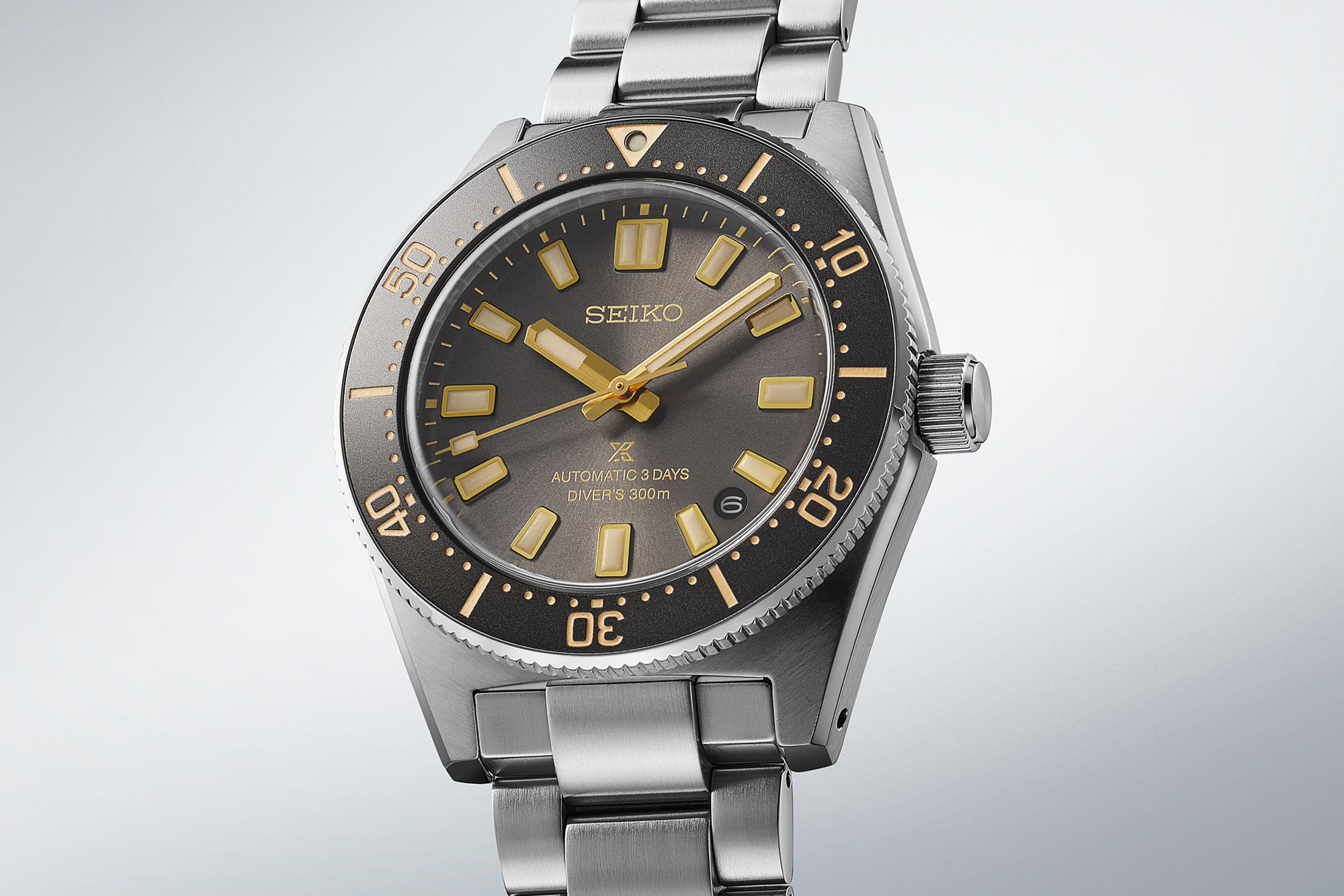
Updated Prospex & Presage Collections Mark Seiko’s 100th Year
2 of 5
Seiko Prospex SPB455 ($2,025)
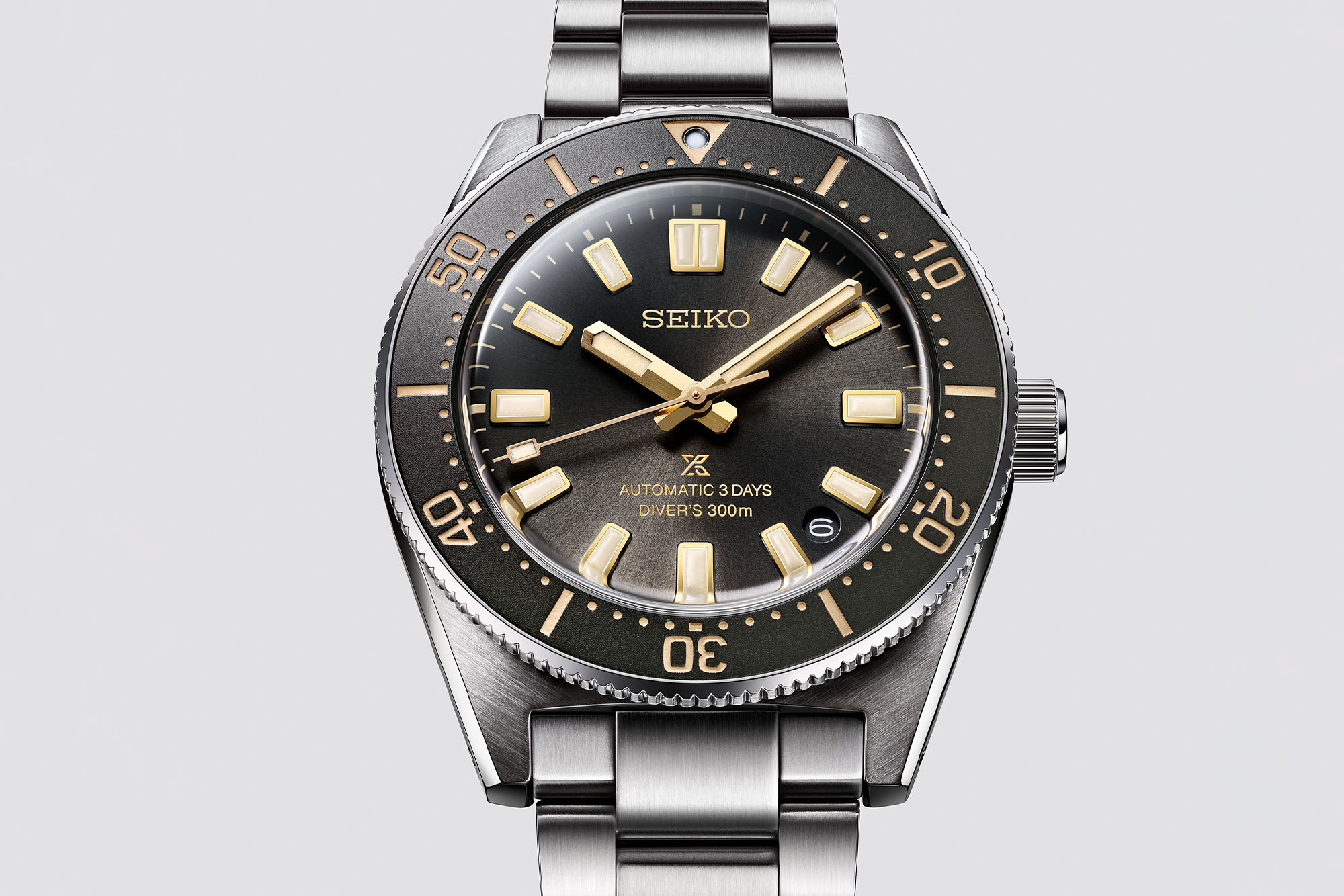
Updated Prospex & Presage Collections Mark Seiko’s 100th Year
3 of 5
Seiko Prospex SPB455 ($2,025)
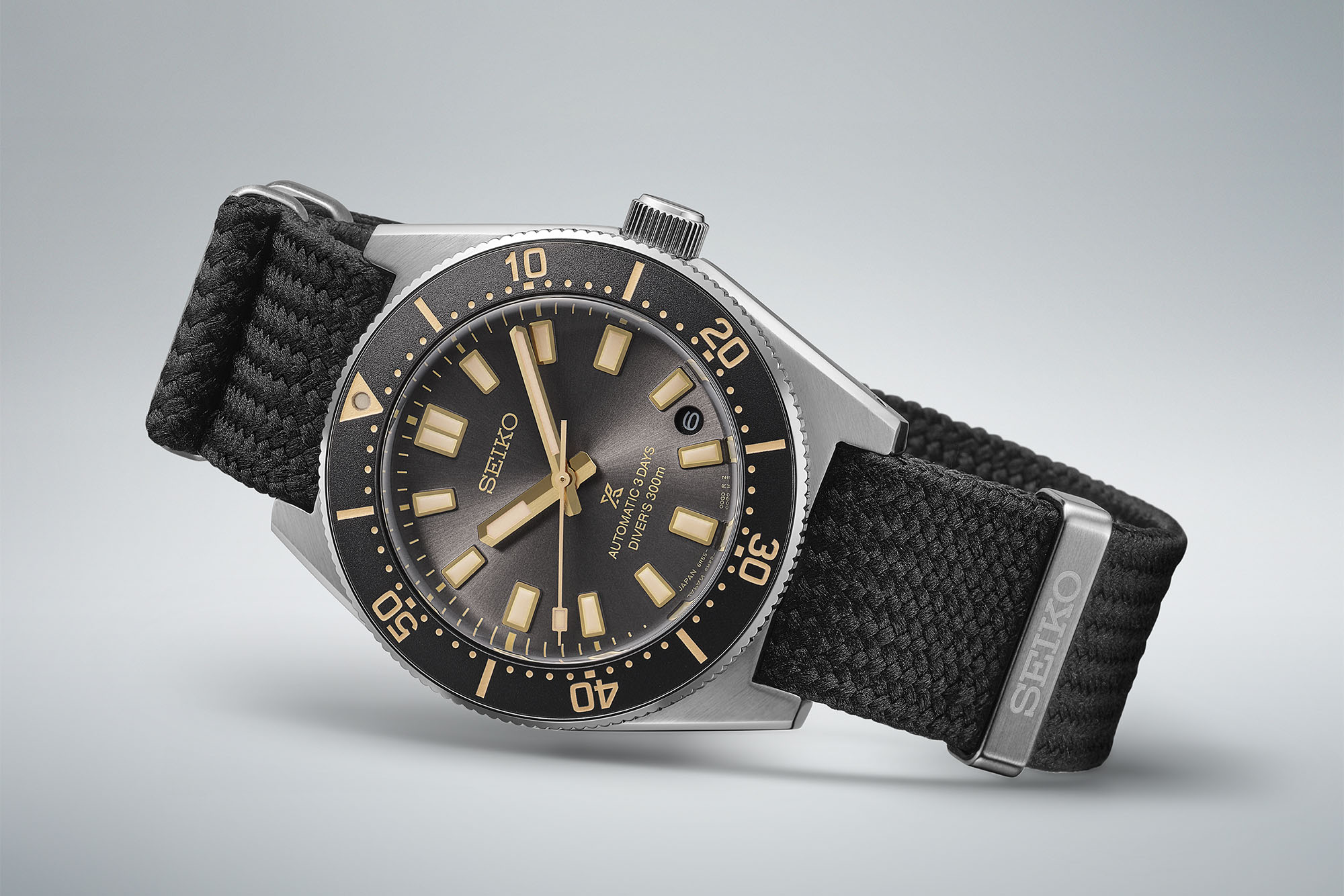
Updated Prospex & Presage Collections Mark Seiko’s 100th Year
4 of 5
Seiko Prospex SPB455 ($2,025)
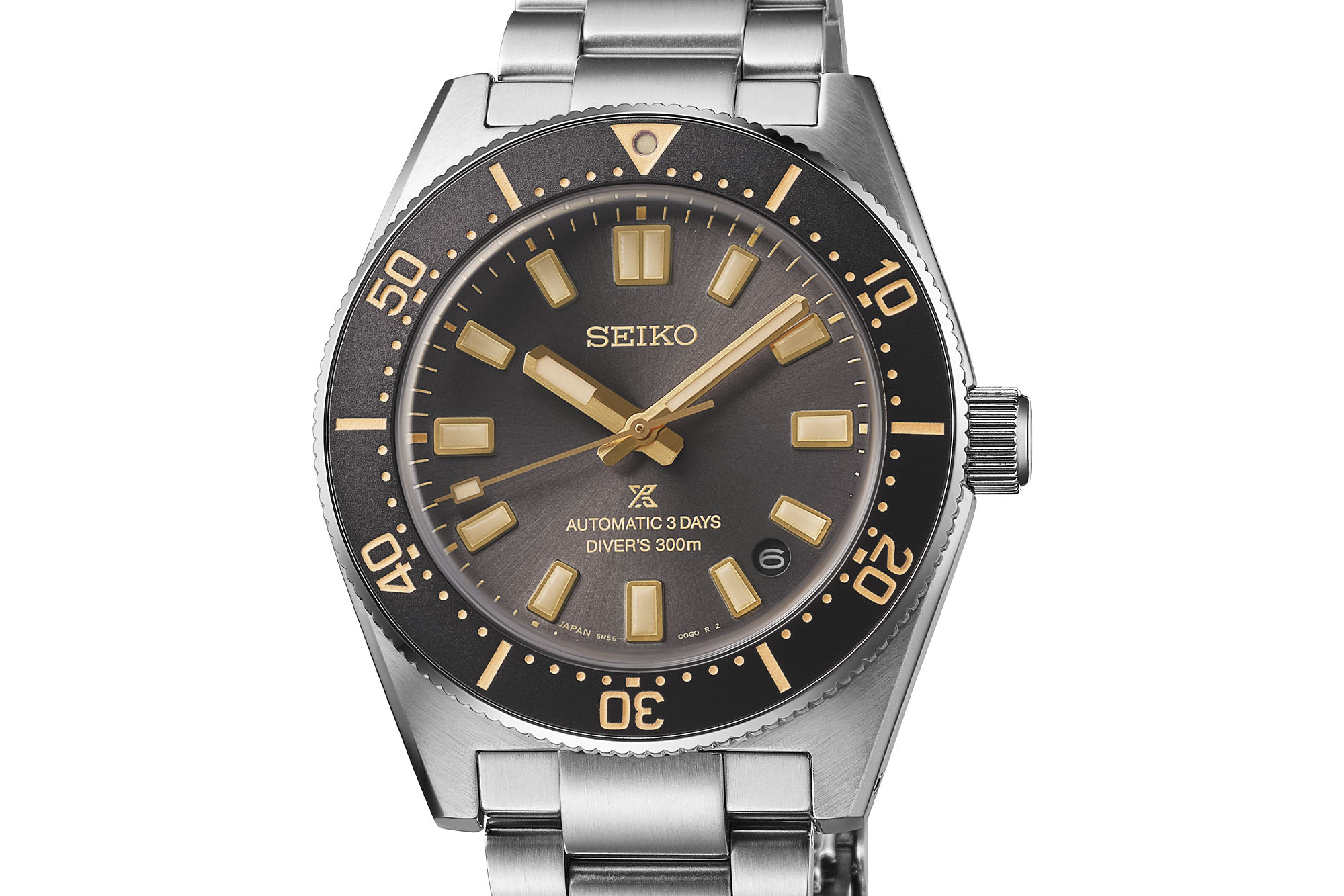
Updated Prospex & Presage Collections Mark Seiko’s 100th Year
5 of 5
Seiko Prospex SPB455 ($2,025)
Learn More
In celebration of Seiko’s centenary, there’s also a 100th Anniversary Edition with a gold-toned vintage look and an additional strap made entirely of recycled plastic bottles. In a characteristic Seiko touch, the new strap was created using a traditional Japanese braiding technique called seichu, whose rich texture and sheen mimic obijime, the decorative cord that holds a kimono sash in place. In addition to this unique texture, the strap is said to be nearly four times stronger than regular Seiko fabric straps.
Seiko Presage
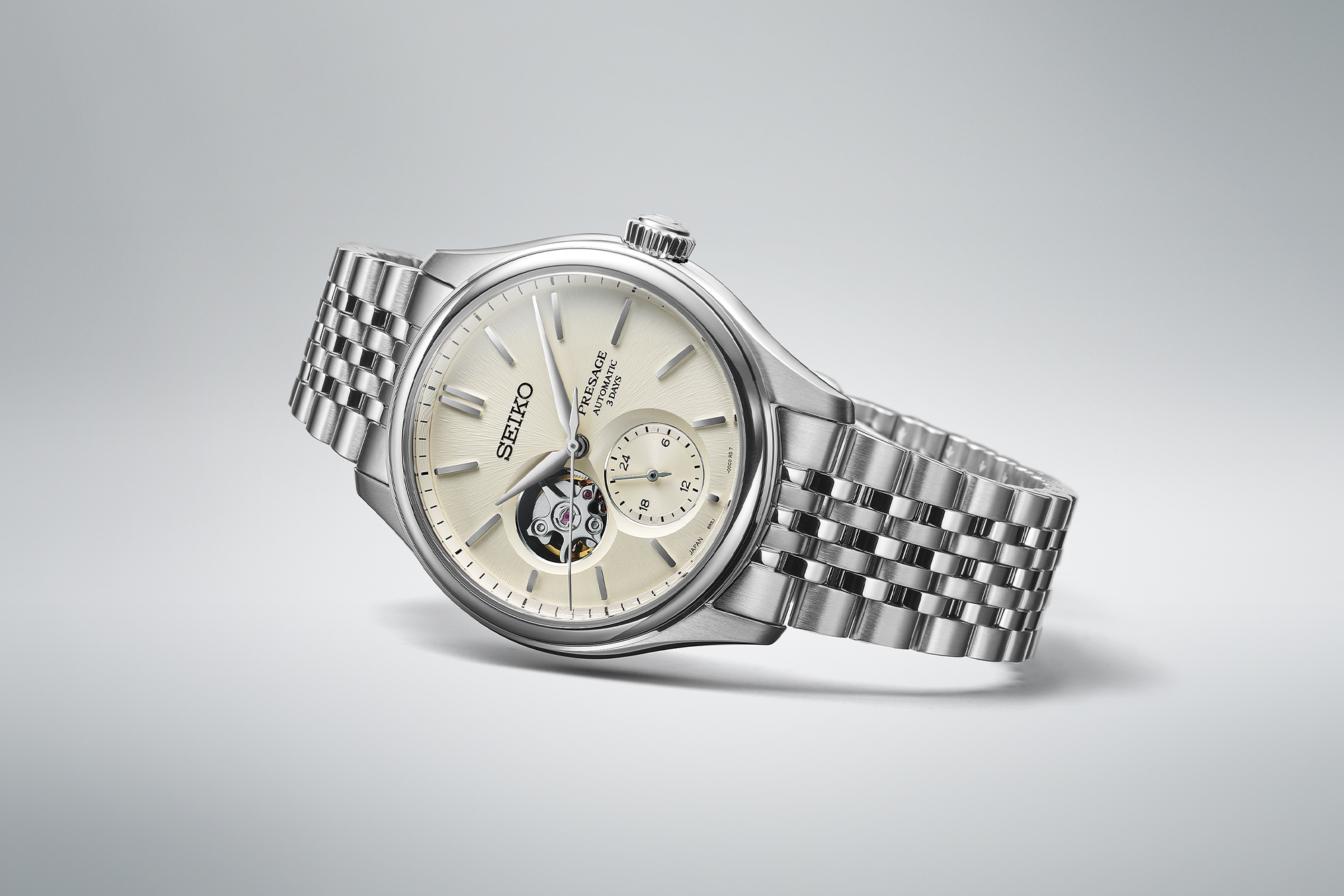
Updated Prospex & Presage Collections Mark Seiko’s 100th Year
1 of 3
Seiko Presage SPB469 ($1,595)
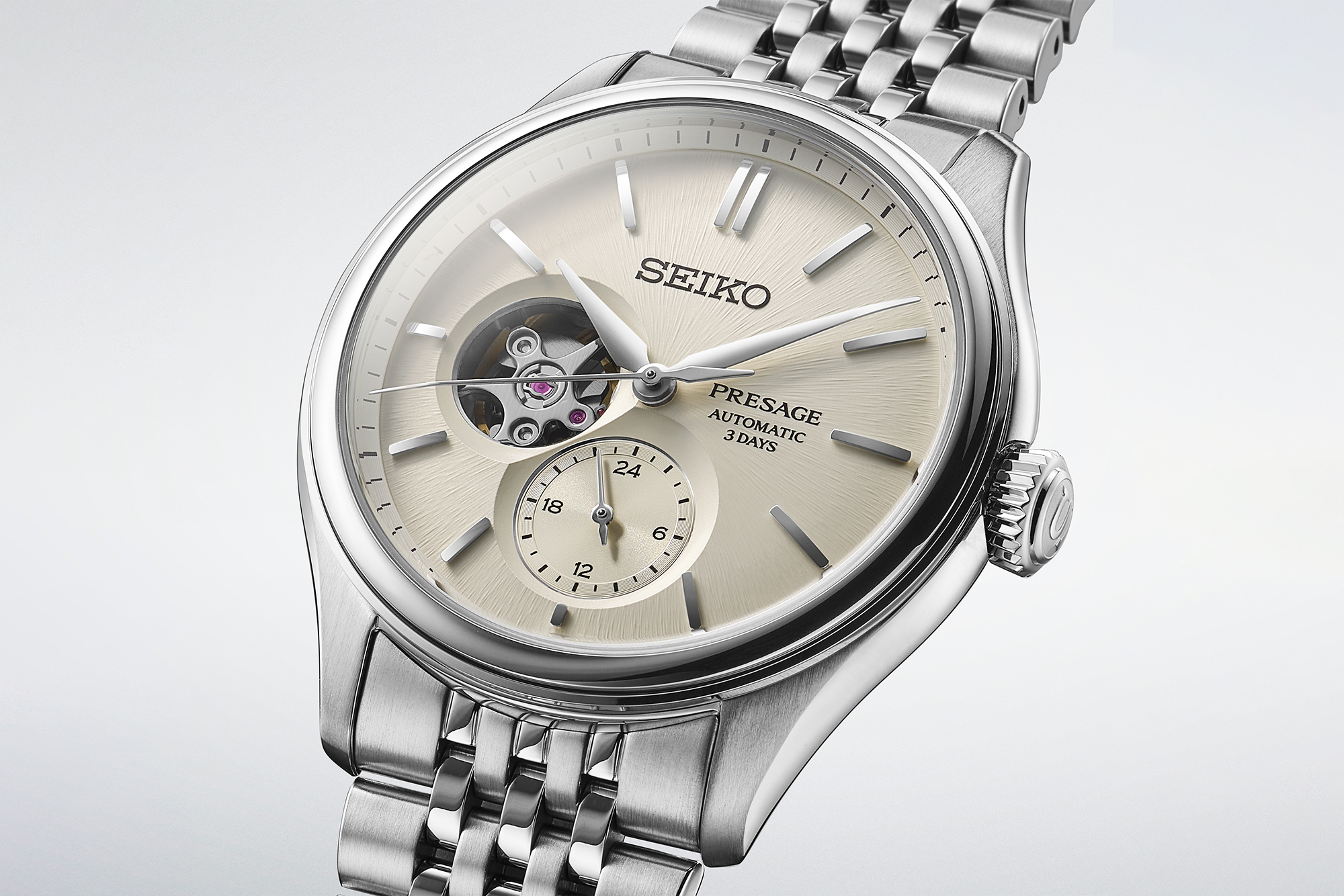
Updated Prospex & Presage Collections Mark Seiko’s 100th Year
2 of 3
Seiko Presage SPB469 ($1,595)
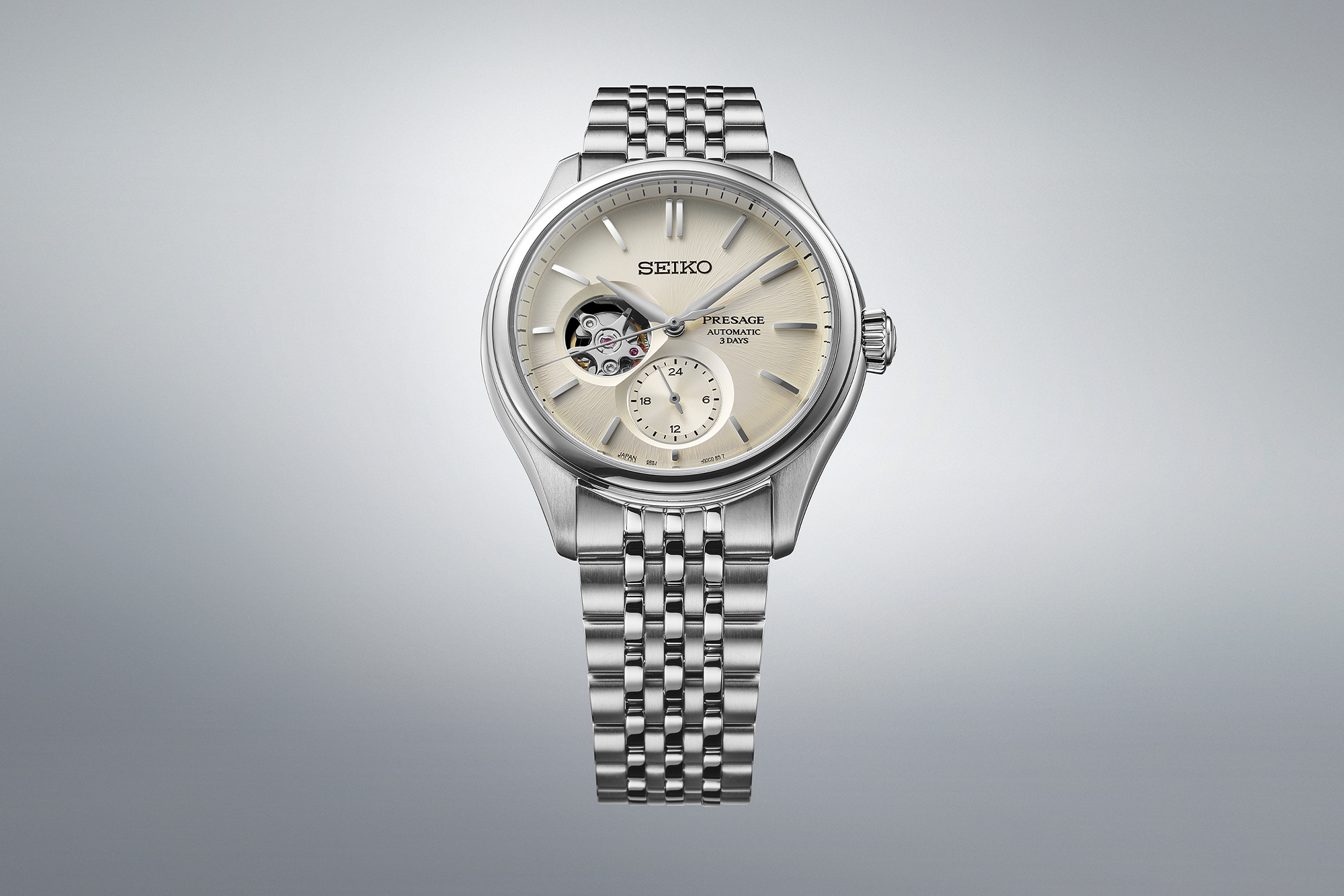
Updated Prospex & Presage Collections Mark Seiko’s 100th Year
3 of 3
Seiko Presage SPB469 ($1,595)
Learn More
The Presage, launched in 2016, combines Seiko’s mechanical watchmaking prowess with dials that evoke traditional Japanese motifs, from rock gardens to kimono fabric. This year sees the debut of the Presage Classic Series, which takes this one step further by, “draw[ing] from the colours, materials, and textures of traditional Japanese crafts to express the soft and gentle side of Japanese design,” as Seiko puts it.
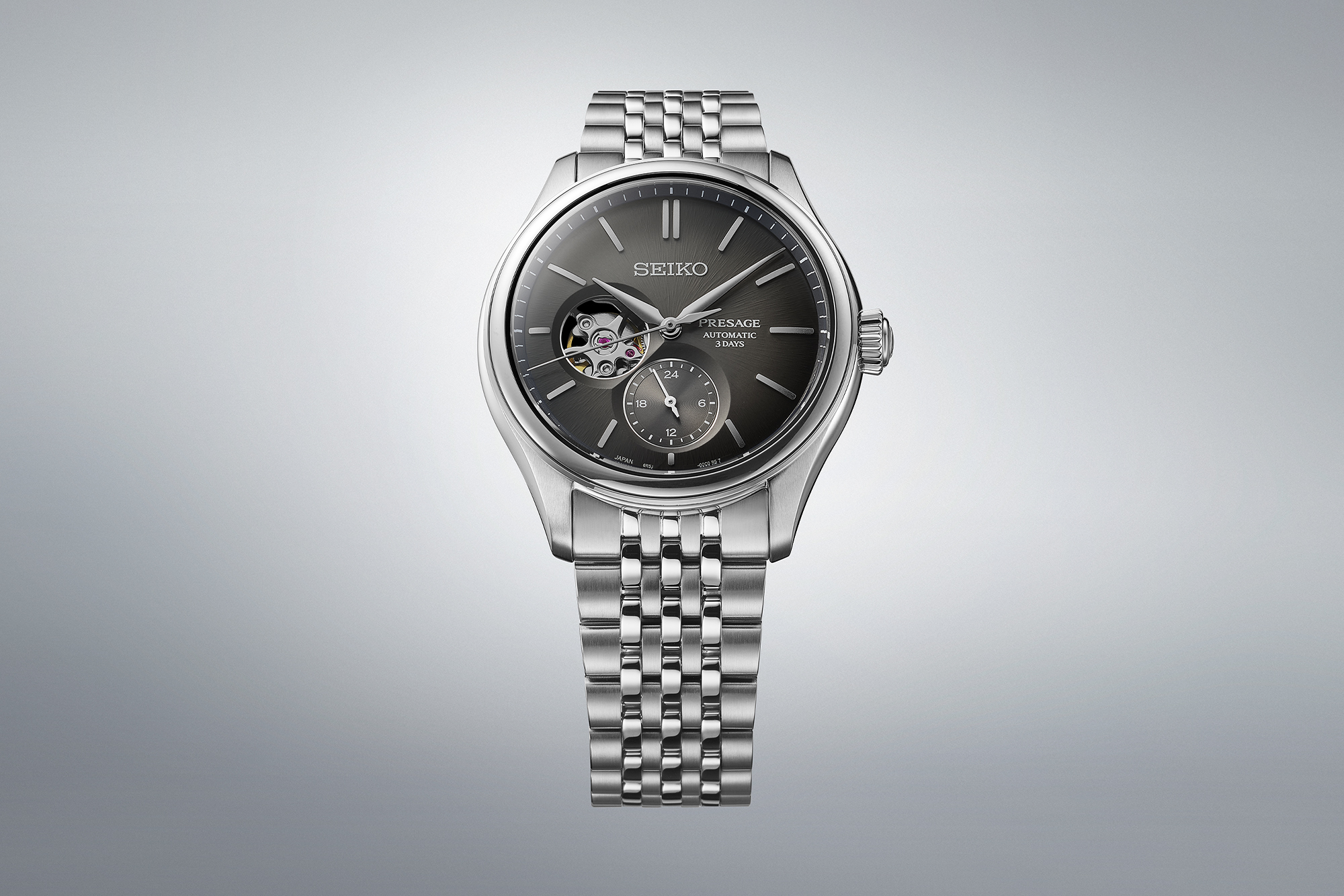
Updated Prospex & Presage Collections Mark Seiko’s 100th Year
1 of 3
Seiko Presage SPB471 ($1,595)
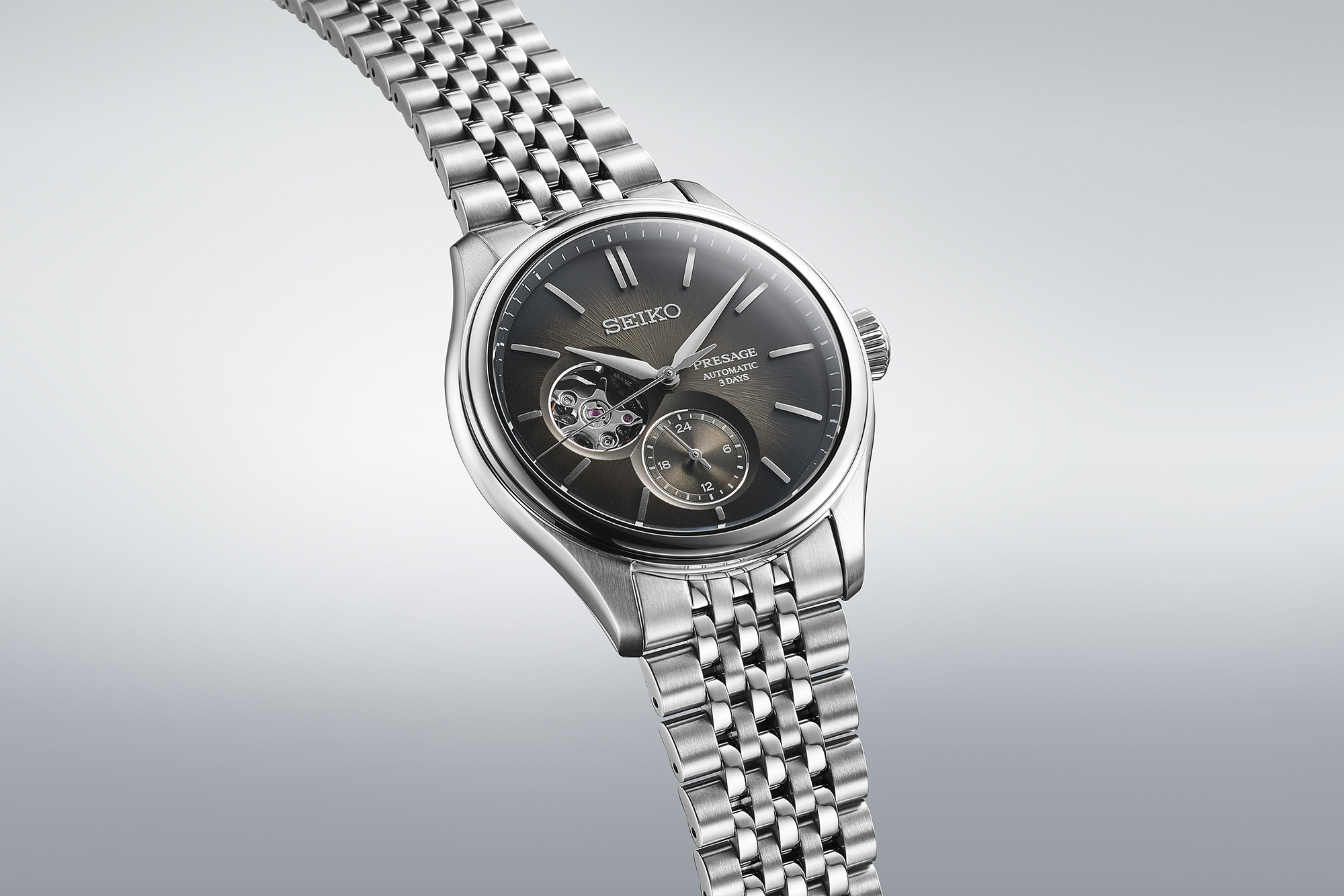
Updated Prospex & Presage Collections Mark Seiko’s 100th Year
2 of 3
Seiko Presage SPB471 ($1,595)
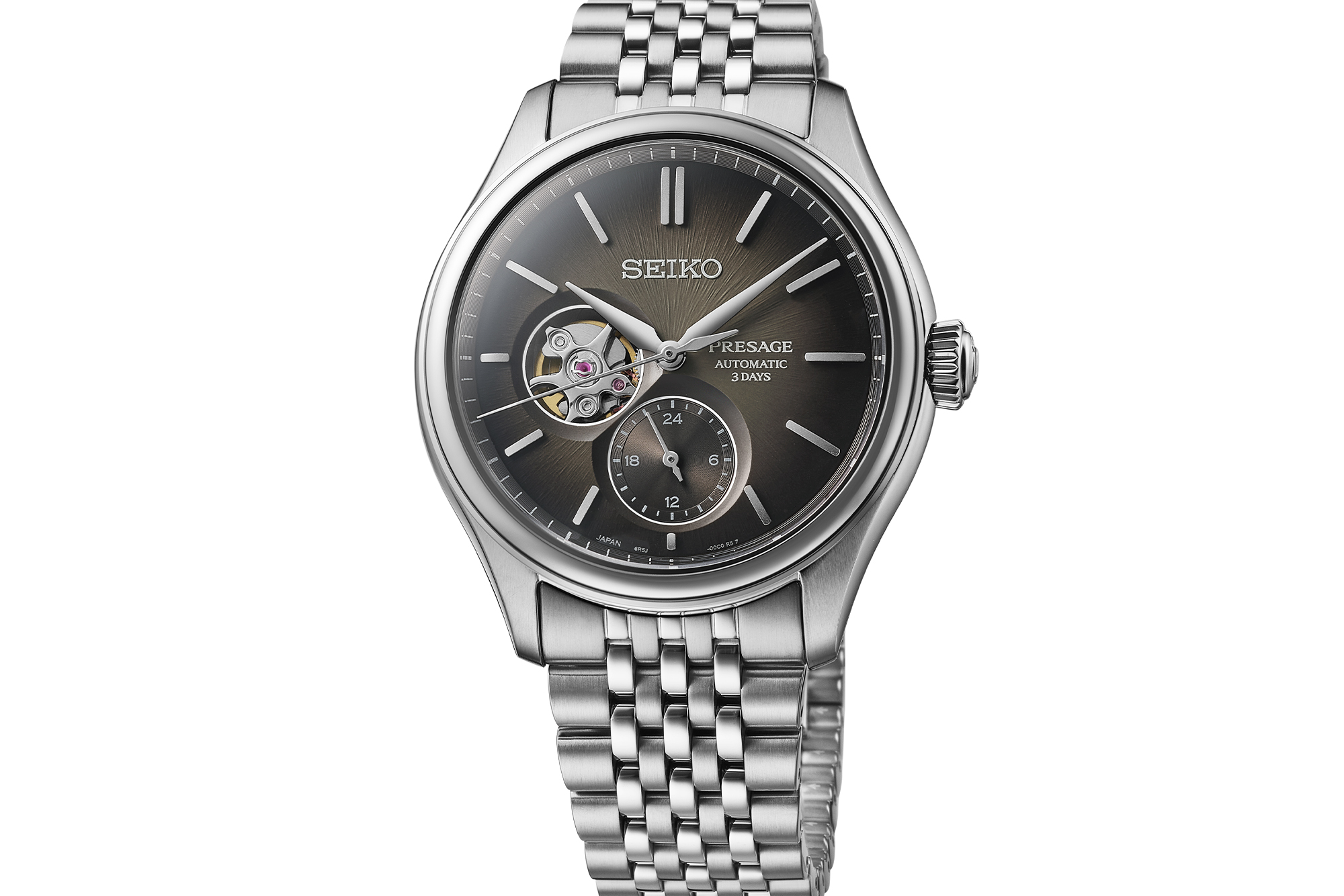
Updated Prospex & Presage Collections Mark Seiko’s 100th Year
3 of 3
Seiko Presage SPB471 ($1,595)
Learn More
The five 40mm pieces in the inaugural collection are powered by automatic movements with 72 hours of power reserve and feature richly textured, curved dials in two configurations. The dials of the three-hand with date models (SPB463, SPB465, SPB467) are said to be inspired by silk fabric, while the two open-heart models (SPB469, SPB471) are meant to evoke the texture of raw silk threads in a radial pattern.
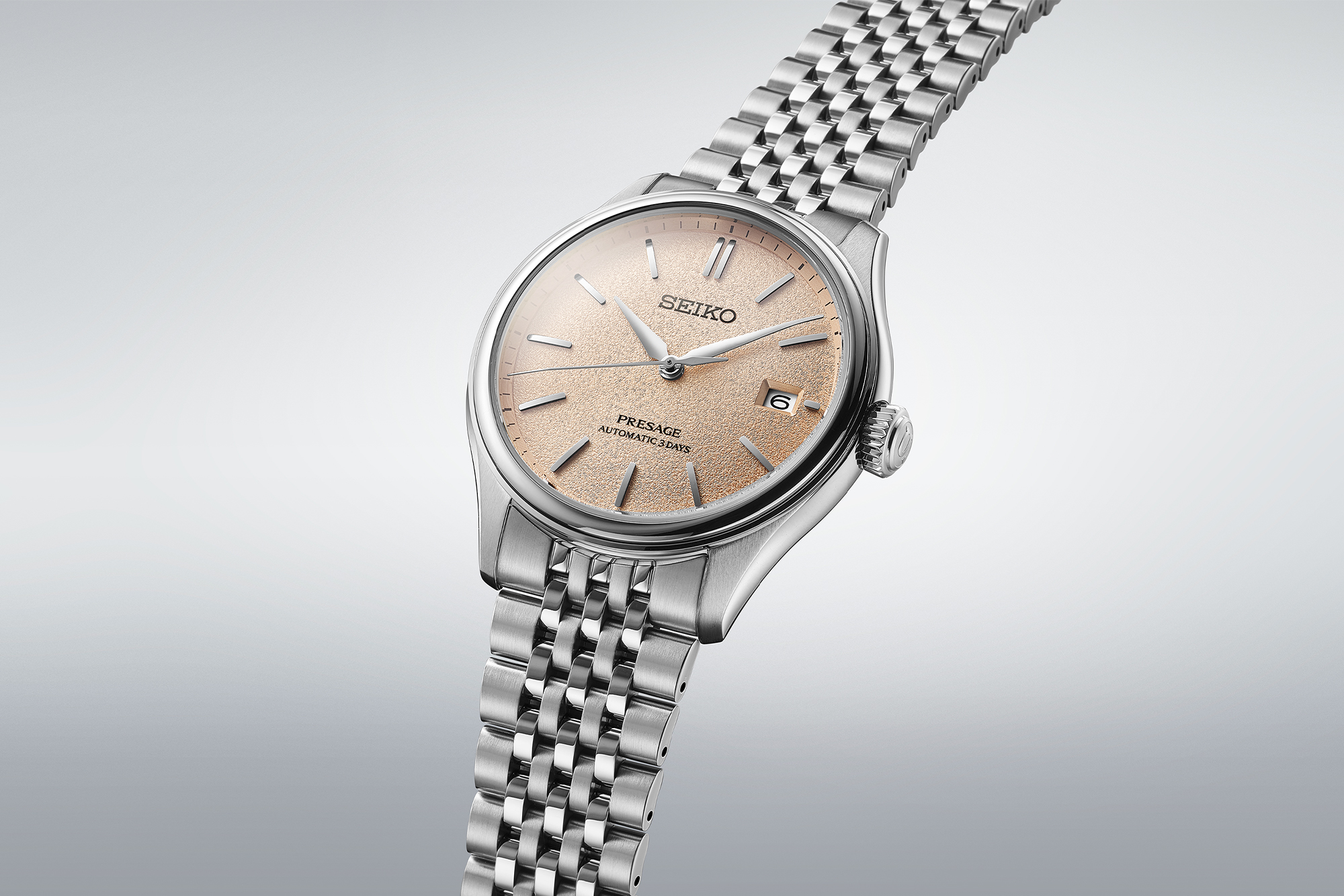
Updated Prospex & Presage Collections Mark Seiko’s 100th Year
1 of 10
Seiko Presage SPB467 ($1,350)
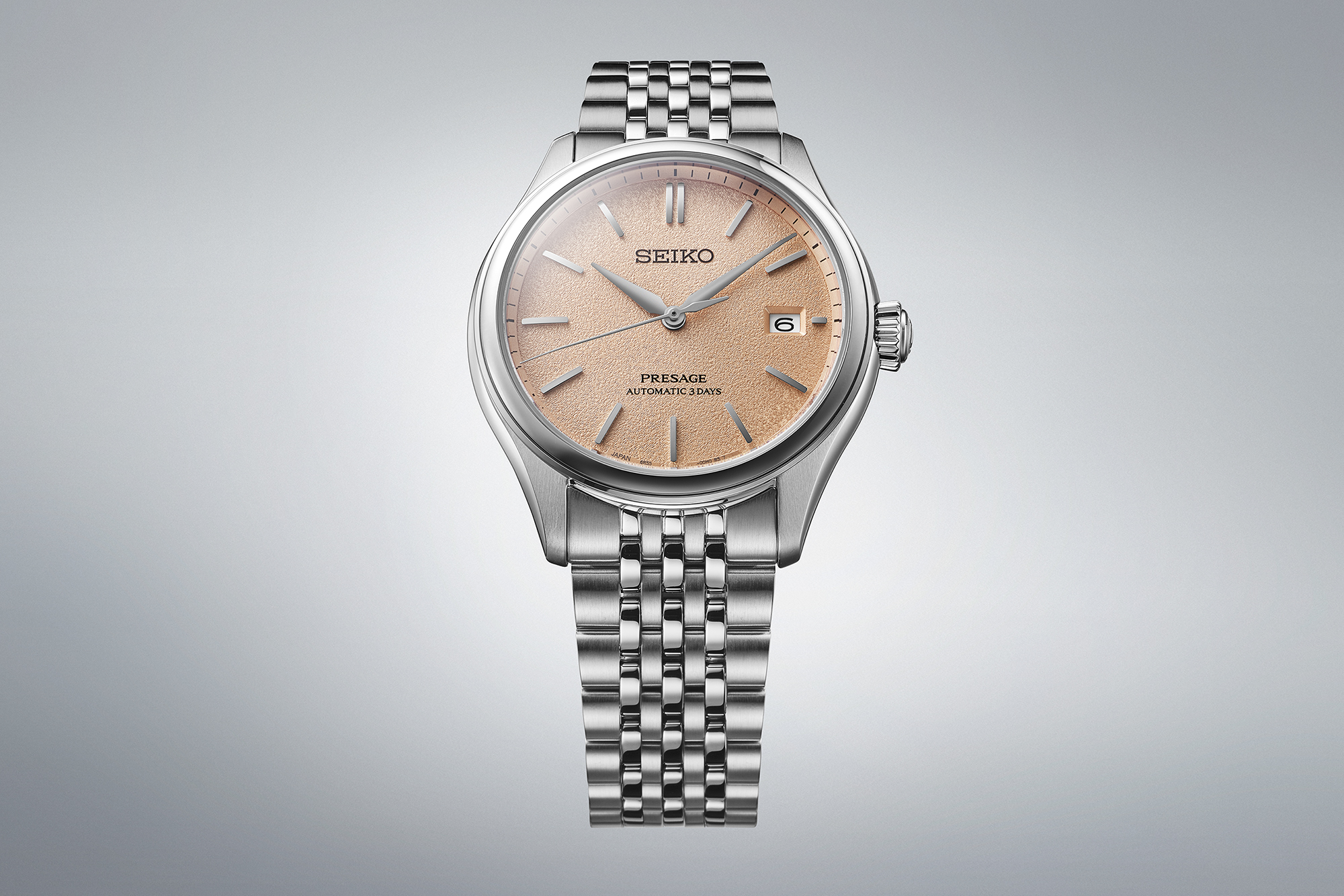
Updated Prospex & Presage Collections Mark Seiko’s 100th Year
2 of 10
Seiko Presage SPB467 ($1,350)
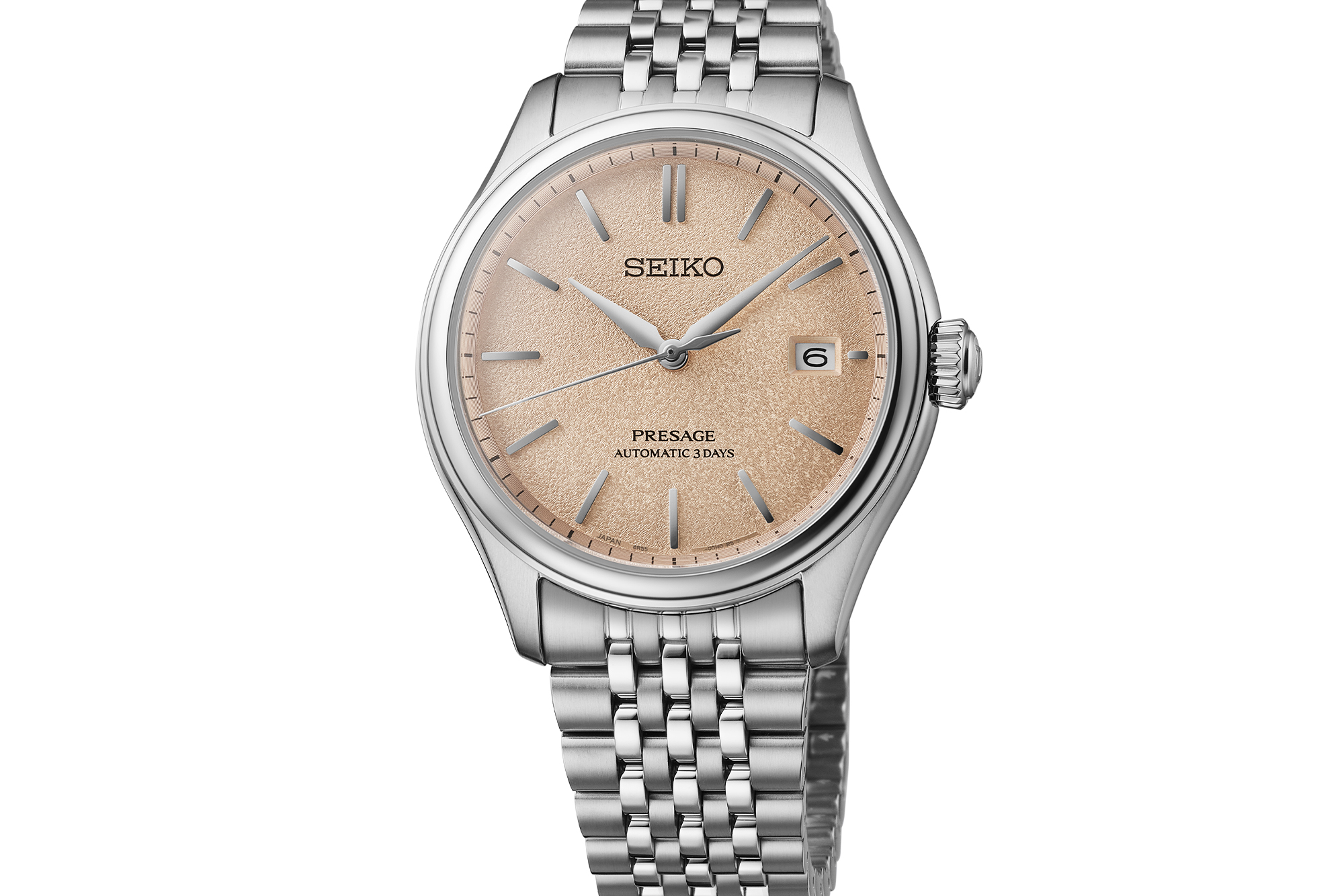
Updated Prospex & Presage Collections Mark Seiko’s 100th Year
3 of 10
Seiko Presage SPB467 ($1,350)
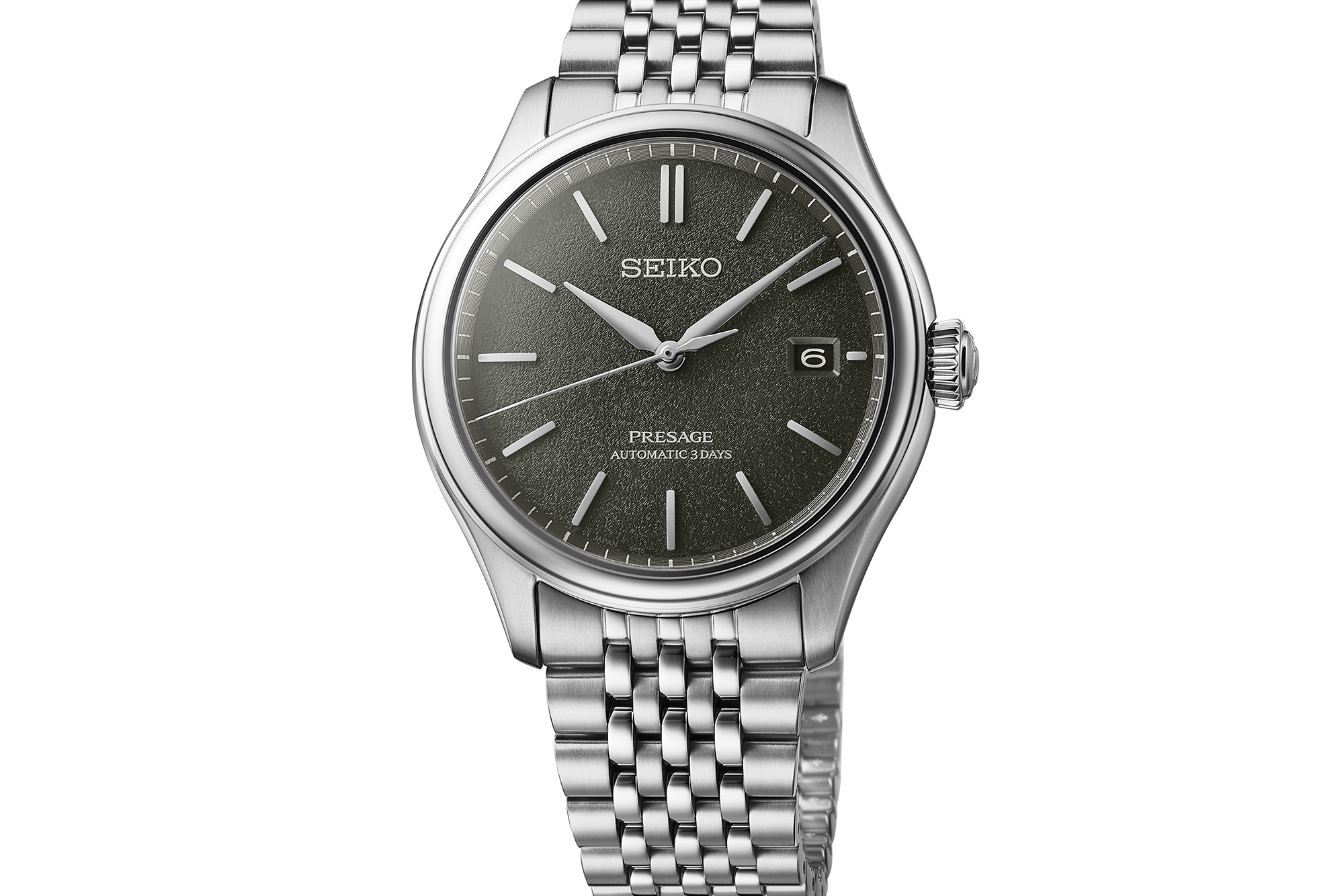
Updated Prospex & Presage Collections Mark Seiko’s 100th Year
4 of 10
Seiko Presage SPB465 ($1,350)
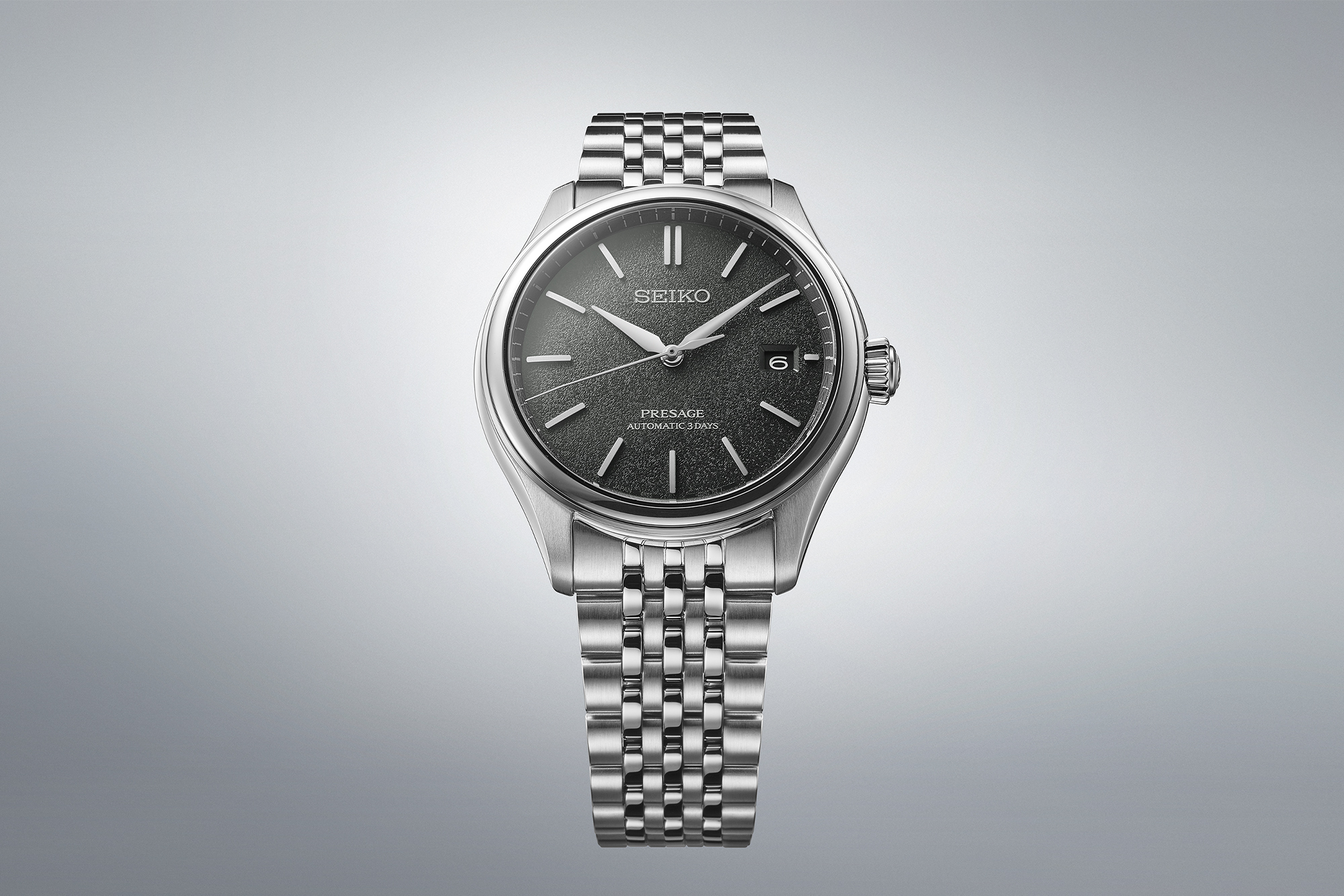
Updated Prospex & Presage Collections Mark Seiko’s 100th Year
5 of 10
Seiko Presage SPB465 ($1,350)
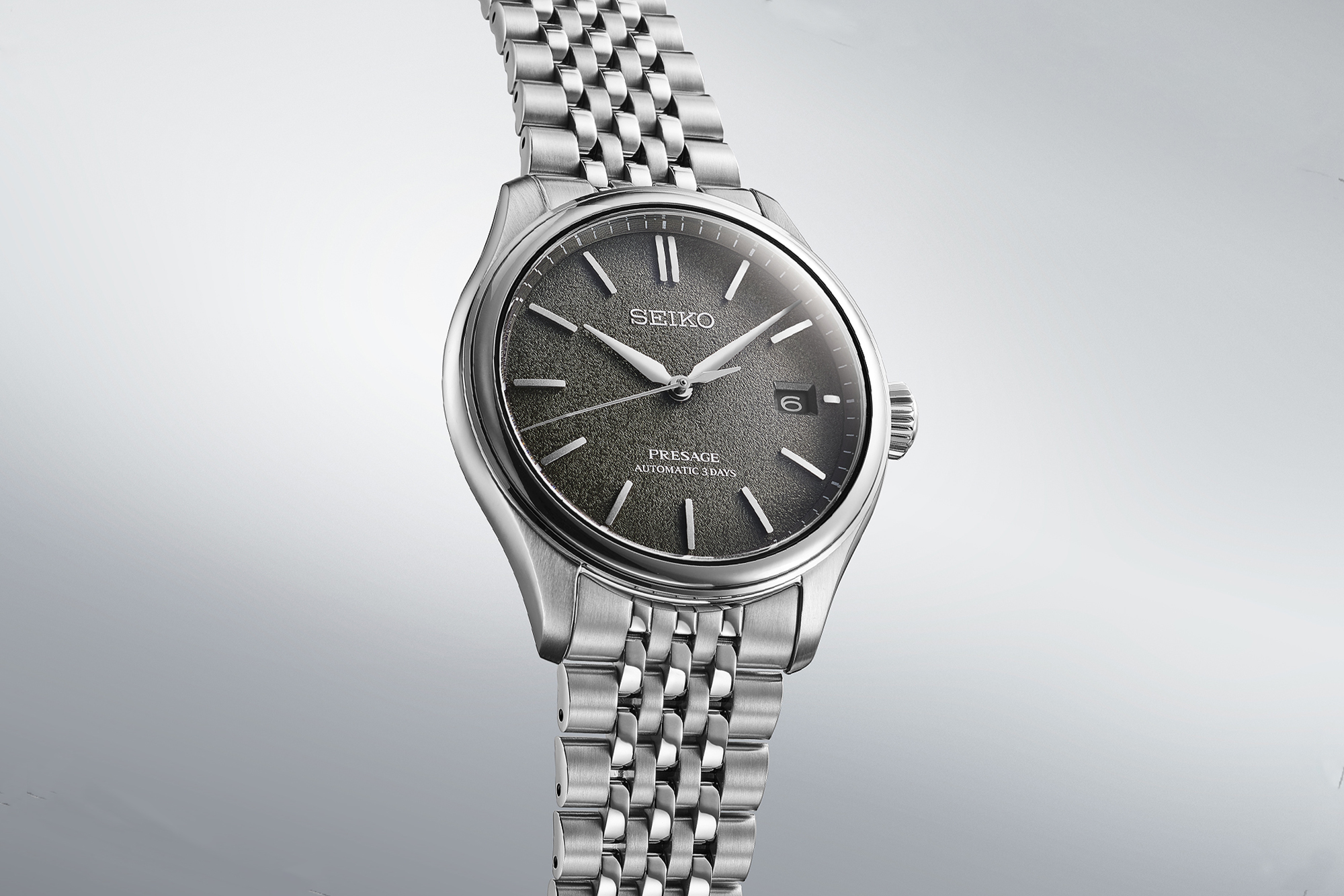
Updated Prospex & Presage Collections Mark Seiko’s 100th Year
6 of 10
Seiko Presage SPB465 ($1,350)
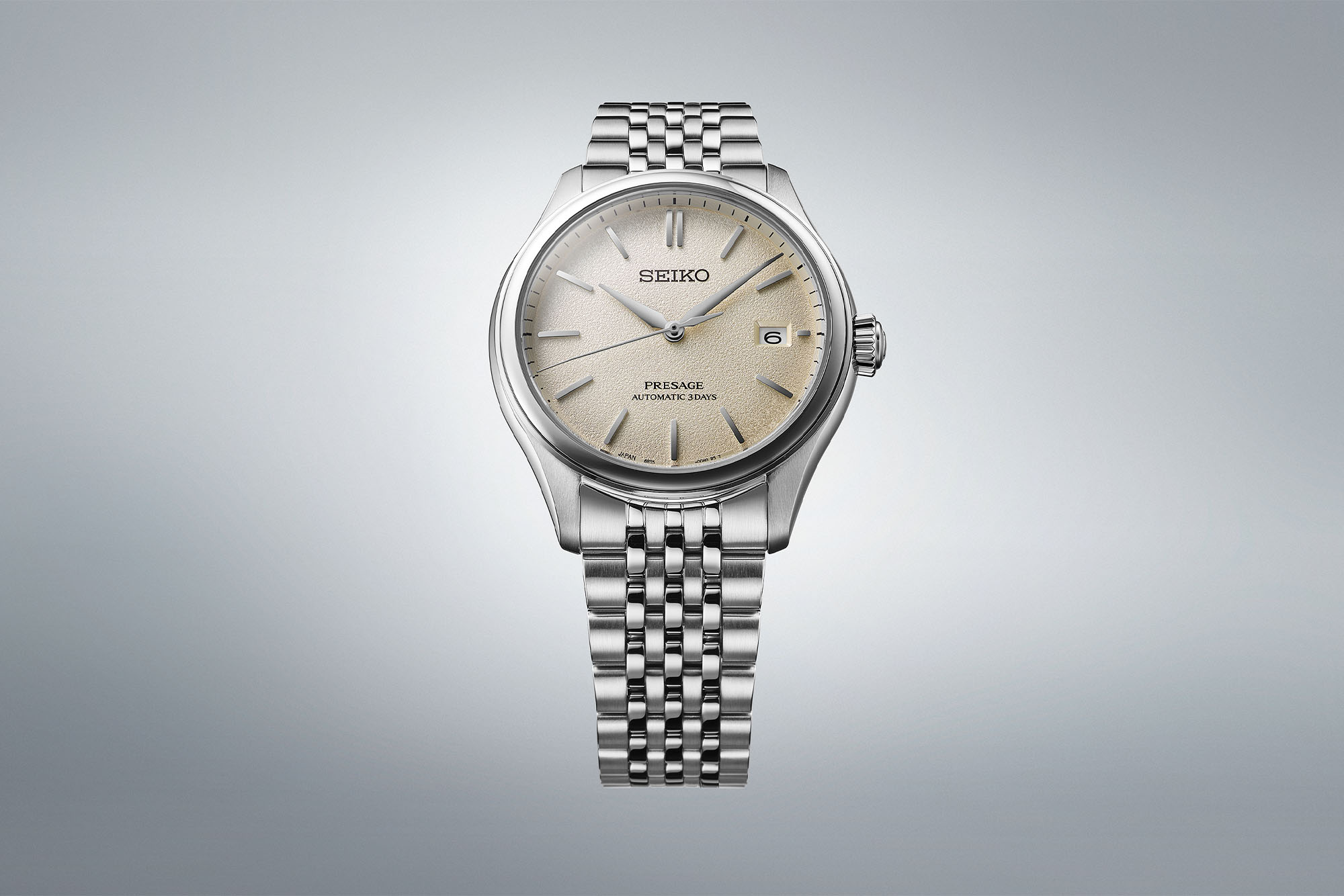
Updated Prospex & Presage Collections Mark Seiko’s 100th Year
7 of 10
Seiko Presage SPB463 ($1,350)
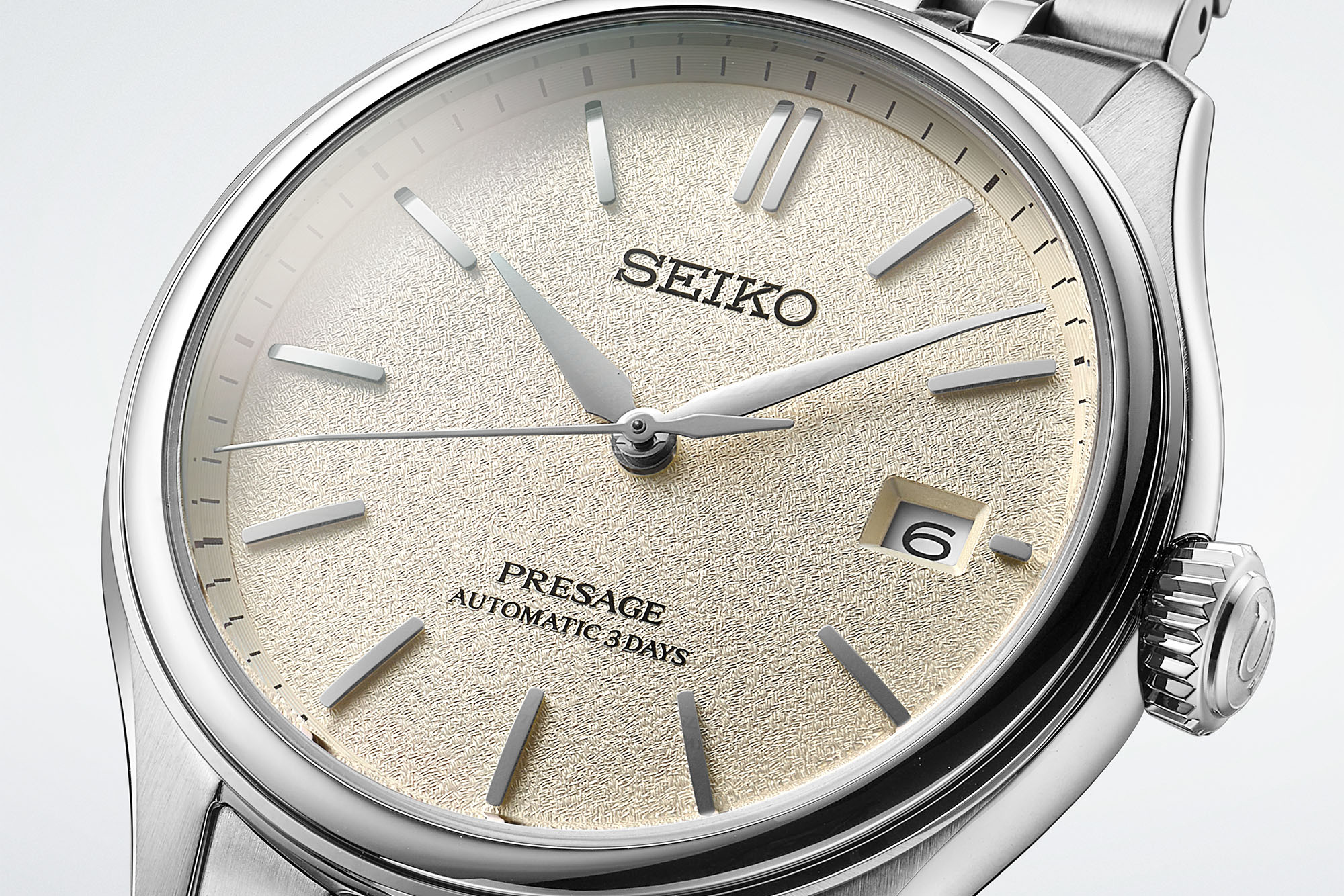
Updated Prospex & Presage Collections Mark Seiko’s 100th Year
8 of 10
Seiko Presage SPB463 ($1,350)
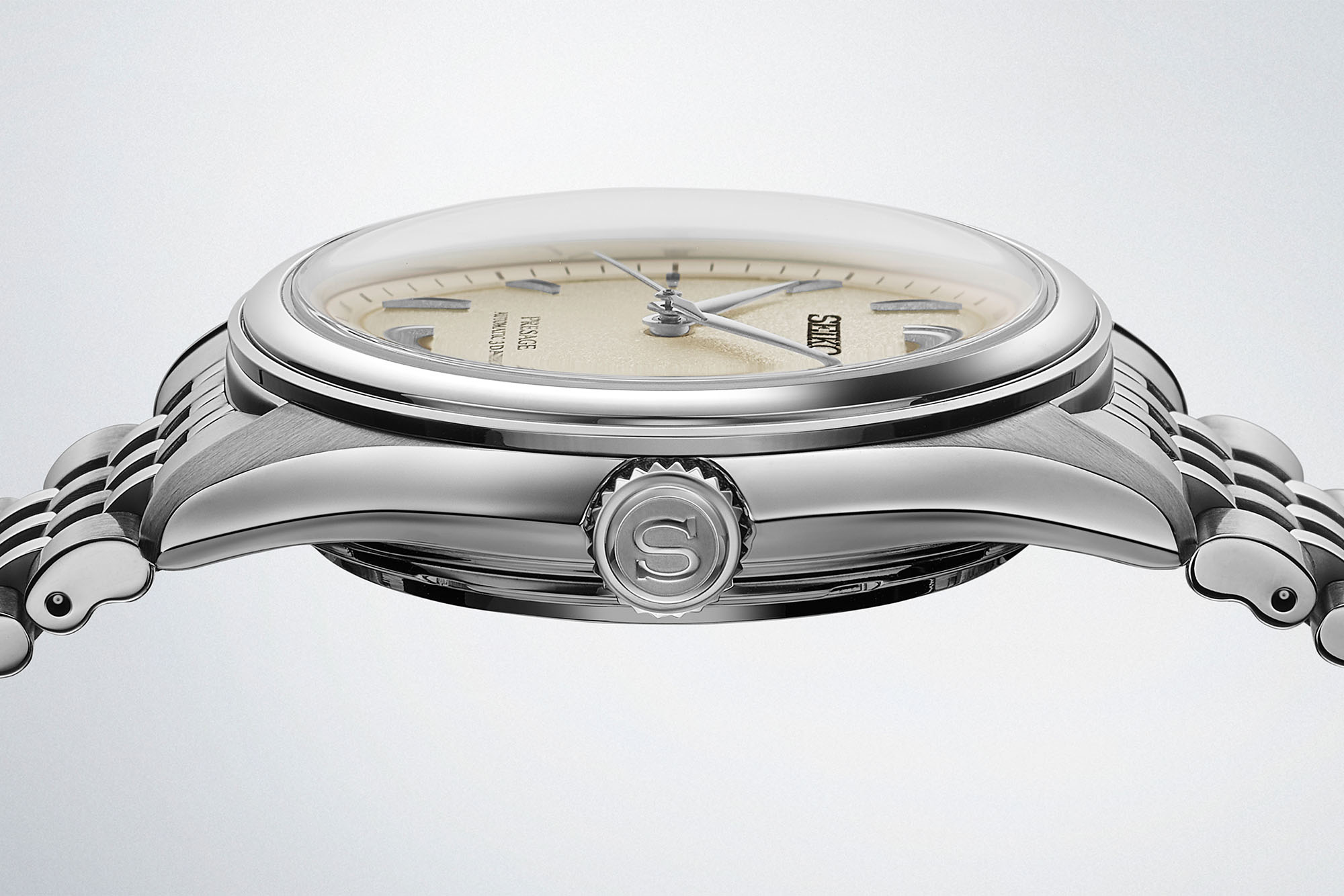
Updated Prospex & Presage Collections Mark Seiko’s 100th Year
9 of 10
Seiko Presage SPB463 ($1,350)
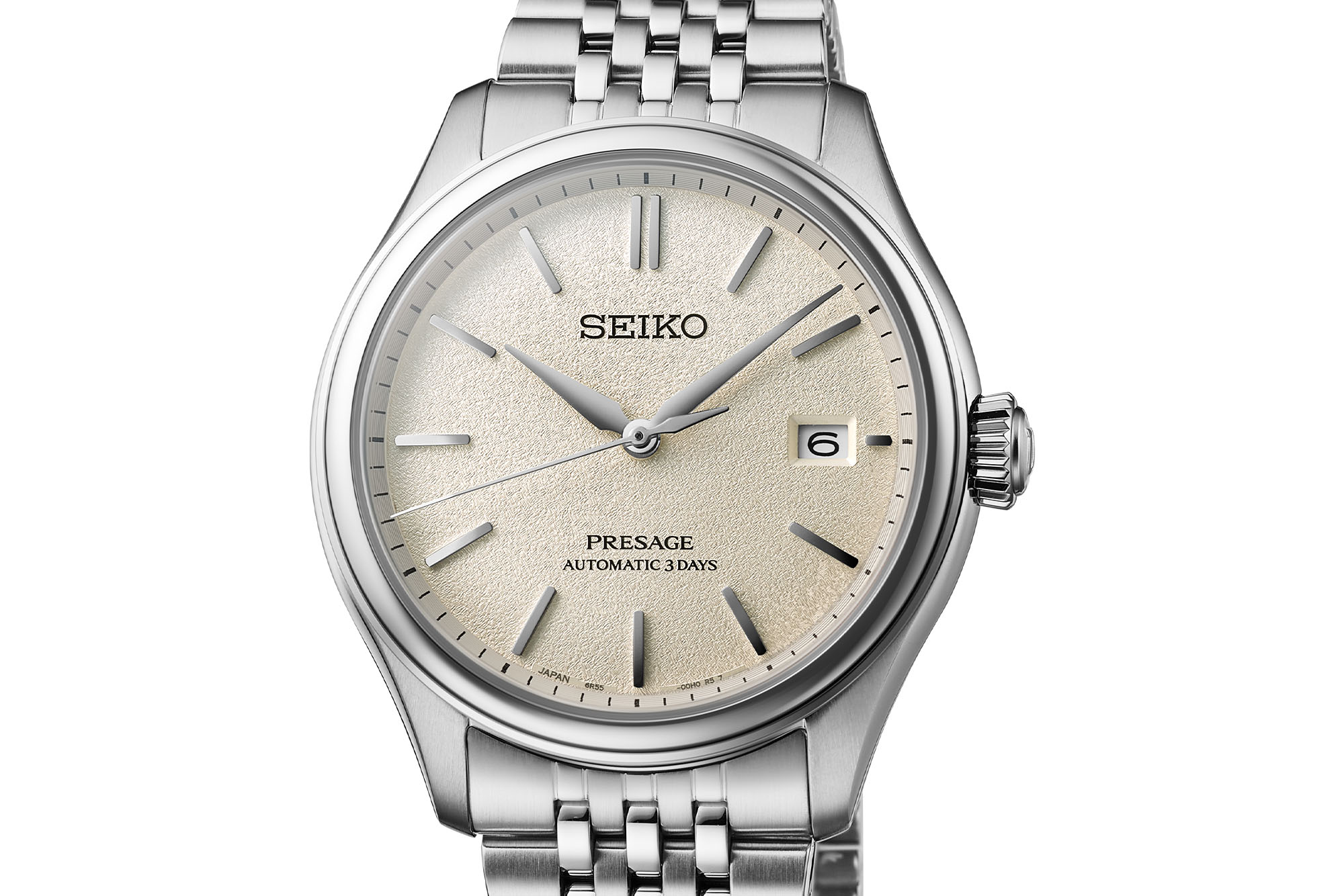
Updated Prospex & Presage Collections Mark Seiko’s 100th Year
10 of 10
Seiko Presage SPB463 ($1,350)
Learn More
In a further nod to Japanese tradition, the colours chosen for these dials include shiro-iro, the colour of unbleached natural fabric, sensaicha, a dark brownish-green that was fashionable during the Edo Period, araigaki, a salmon-adjacent pale persimmon hue; and sumi-iro, a greyish black originally used in garments worn by monks.
Seiko Presage Craftsmanship Series

Updated Prospex & Presage Collections Mark Seiko’s 100th Year
1 of 6
Seiko Presage Craftsmanship Series SPB437 (USD $1,600)
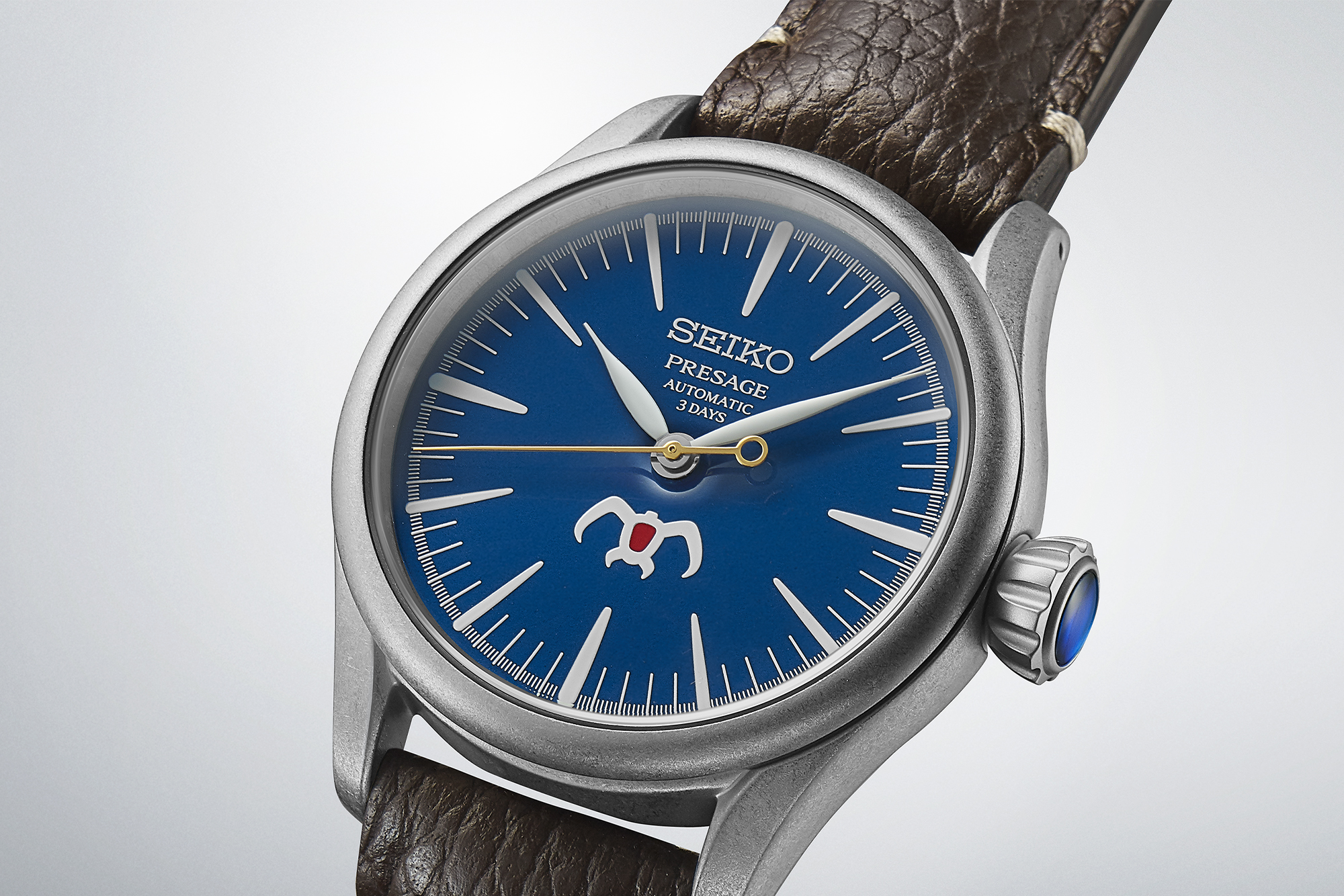
Updated Prospex & Presage Collections Mark Seiko’s 100th Year
2 of 6
Seiko Presage Craftsmanship Series SPB437 (USD $1,600)
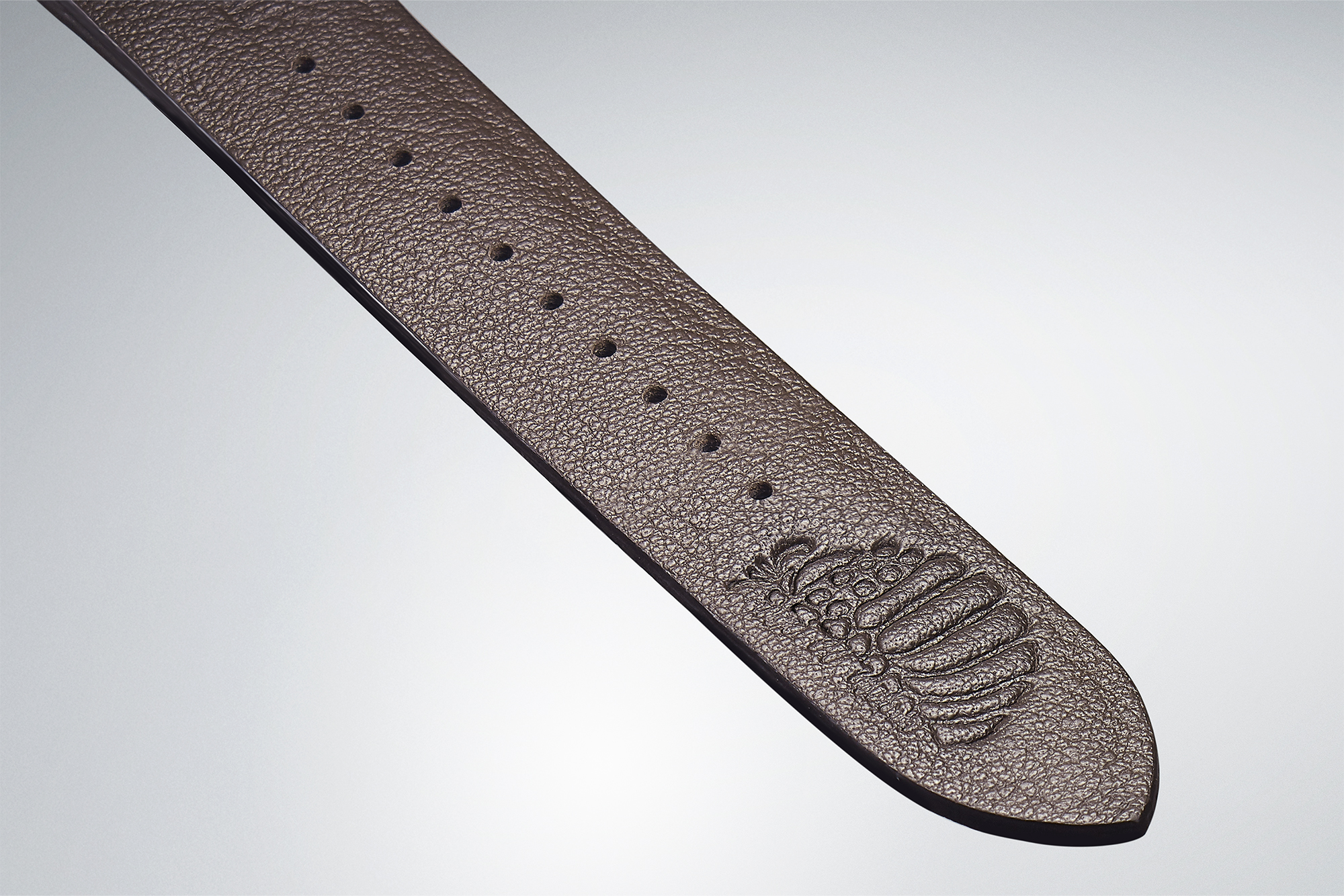
Updated Prospex & Presage Collections Mark Seiko’s 100th Year
3 of 6
Seiko Presage Craftsmanship Series SPB437 (USD $1,600)
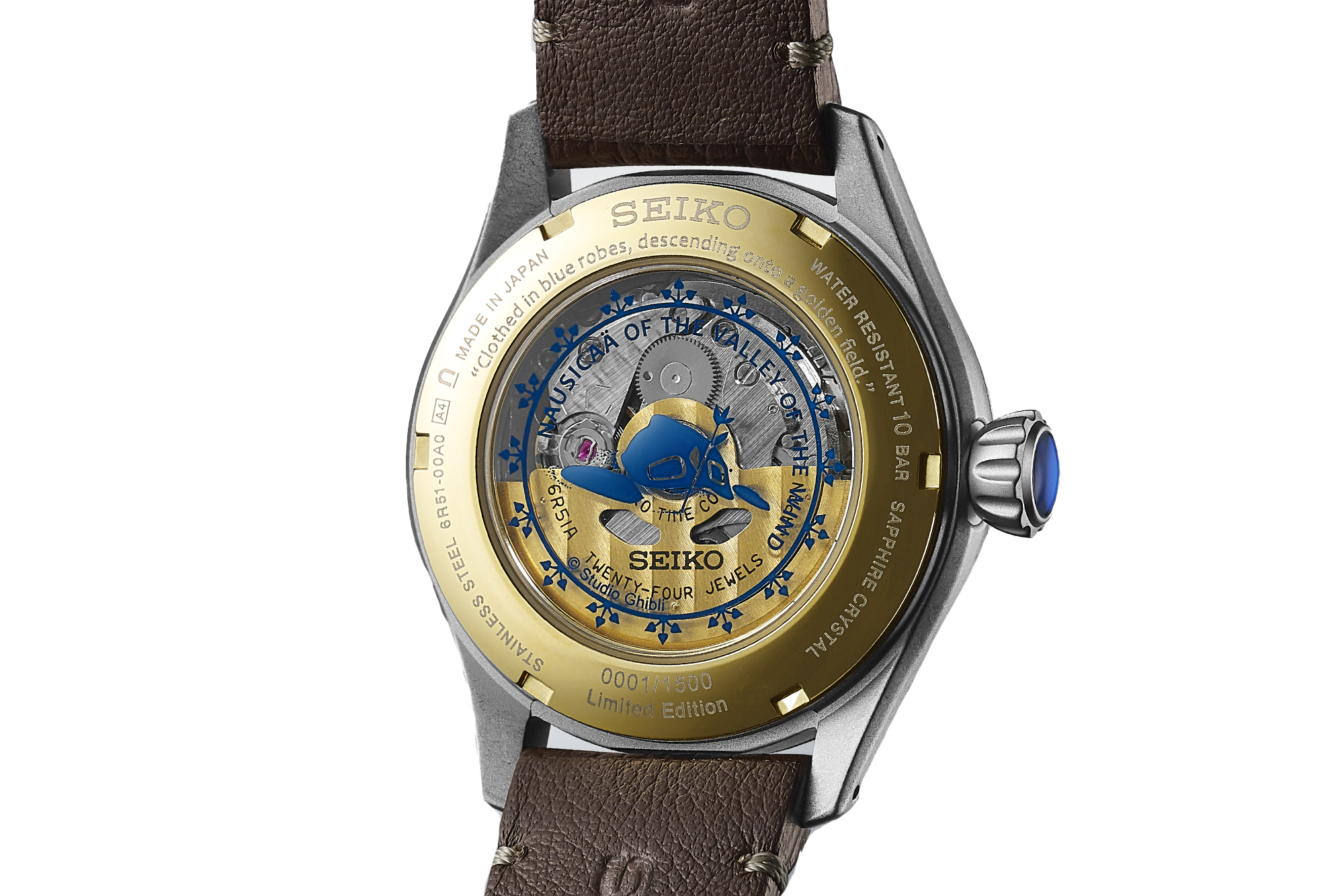
Updated Prospex & Presage Collections Mark Seiko’s 100th Year
4 of 6
Seiko Presage Craftsmanship Series SPB437 (USD $1,600)
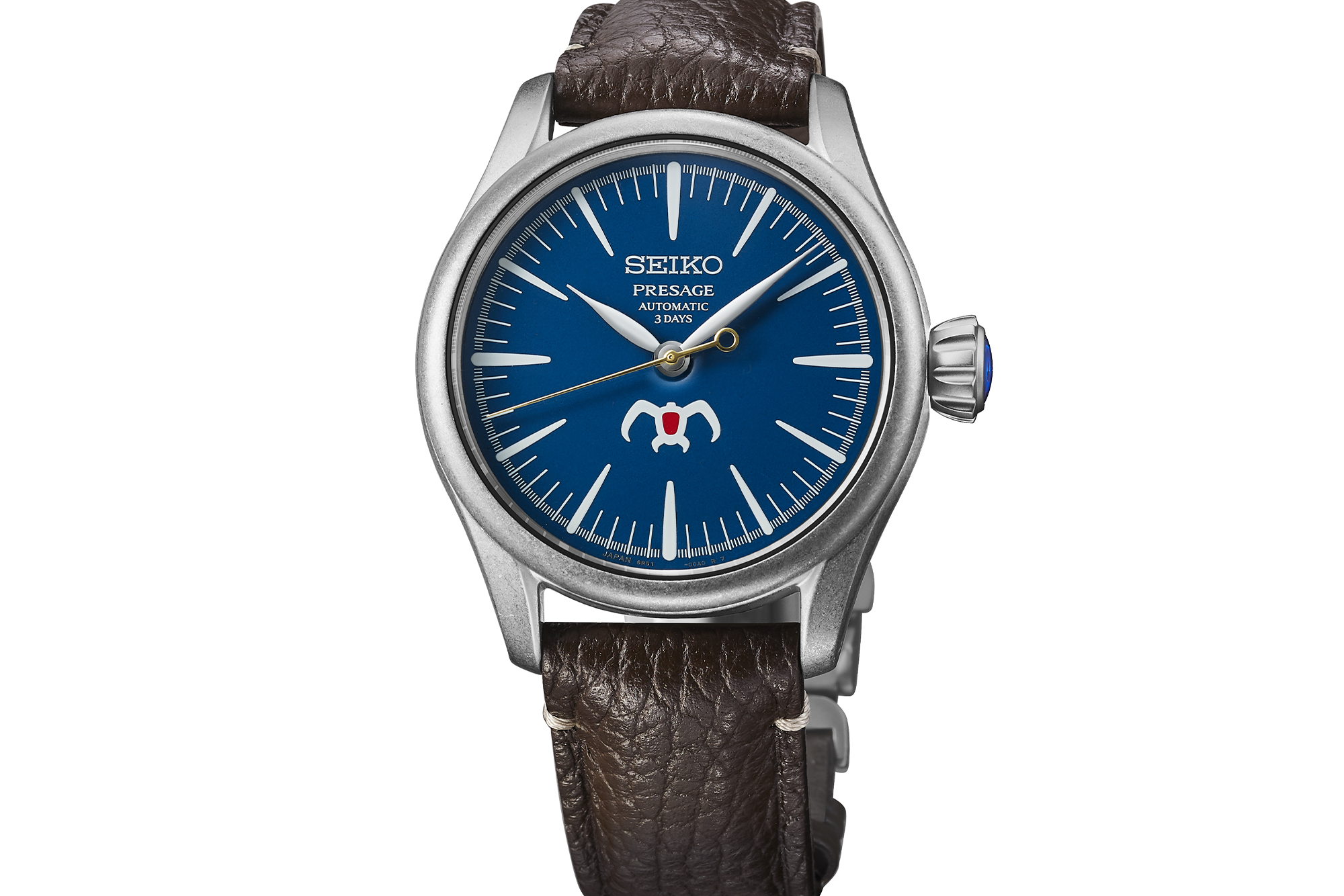
Updated Prospex & Presage Collections Mark Seiko’s 100th Year
5 of 6
Seiko Presage Craftsmanship Series SPB437 (USD $1,600)
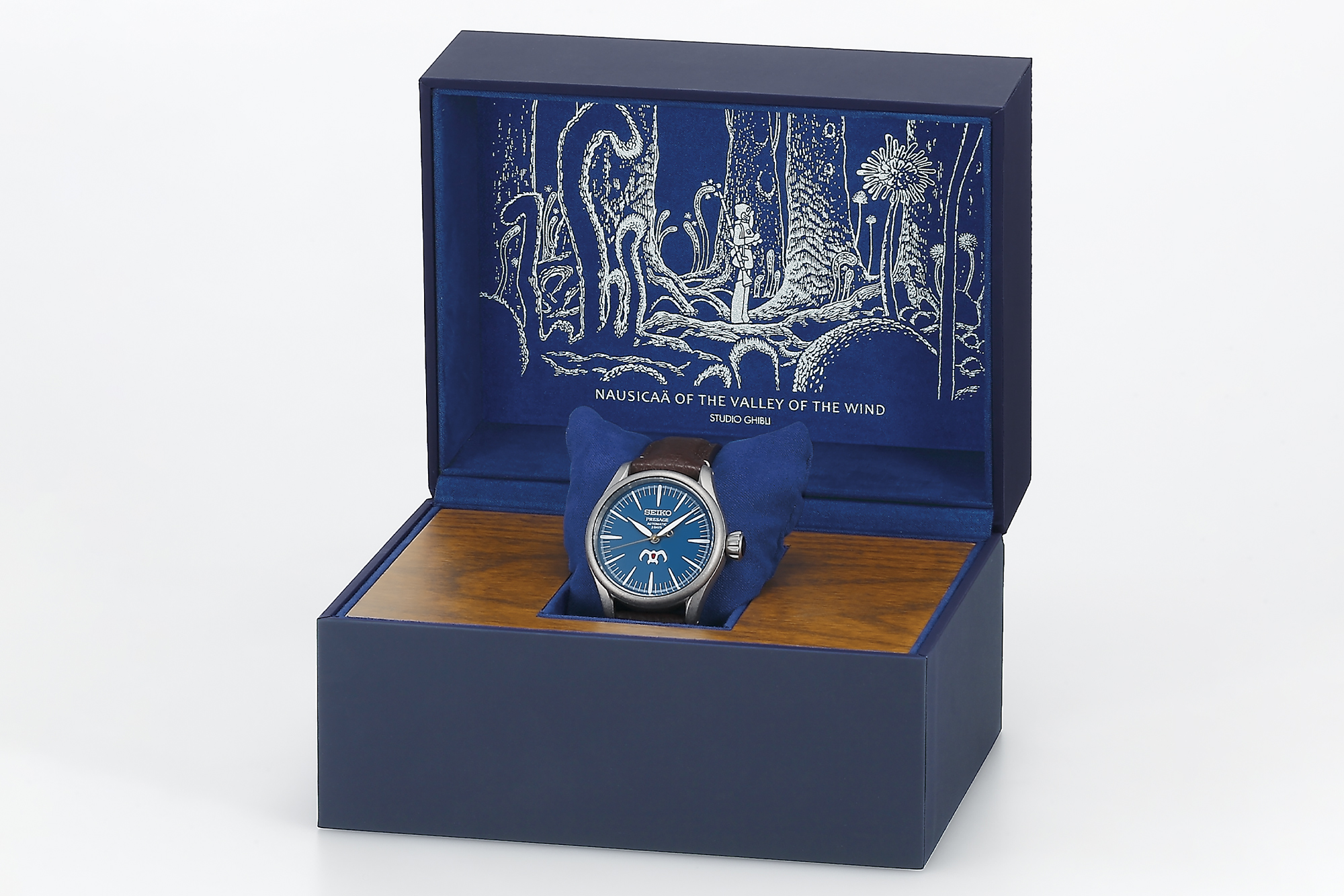
Updated Prospex & Presage Collections Mark Seiko’s 100th Year
6 of 6
Seiko Presage Craftsmanship Series SPB437 (USD $1,600)
Learn More
And lest you think it’s all seriousness over at Seiko HQ, the brand recently unveiled a new addition to its Presage Craftsmanship Series dedicated to one of Japan’s most beloved cultural institutions, Studio Ghibli. Taking a characteristically in-depth approach to the collaboration, Seiko pays tribute to Hayao Miyazaki’s 1984 anime classic, Nausicaä of the Valley of the Wind with an impressive level of detail. The case has a textured, vintage-style finish that resembles the film’s post-apocalyptic aesthetic, with an oversized crown set with blue crystal glass to evoke the eye of the giant trilobite-like creatures central to its plot. Other details include a blue enamel dial created by Seiko master craftsman Mitsuru Yokosawa in the same shade as the costume worn by the story’s heroine, Nausicaä, with the emblem from one of her signature tunics printed at six o’clock.
TAGS:
SEIKO
